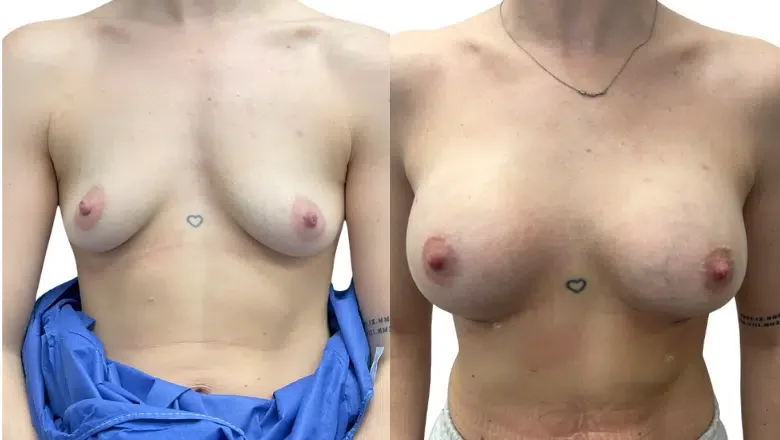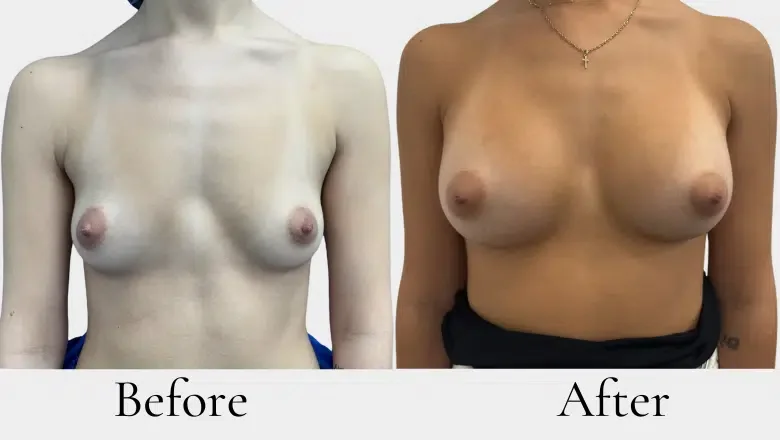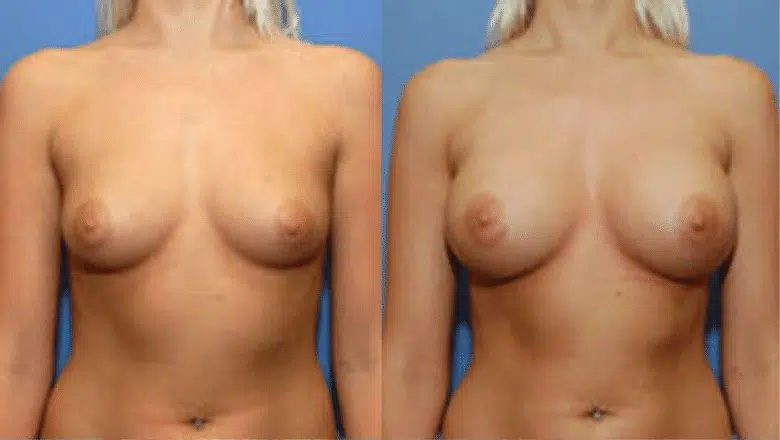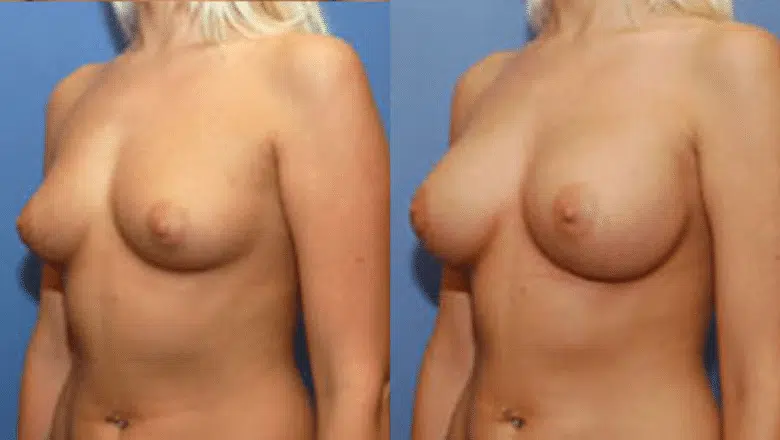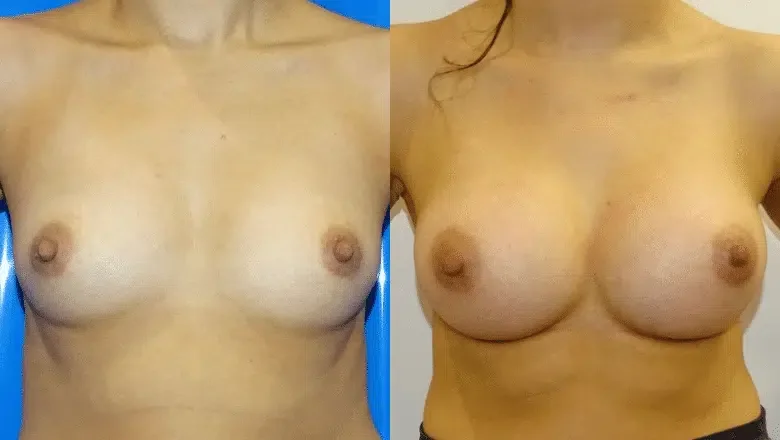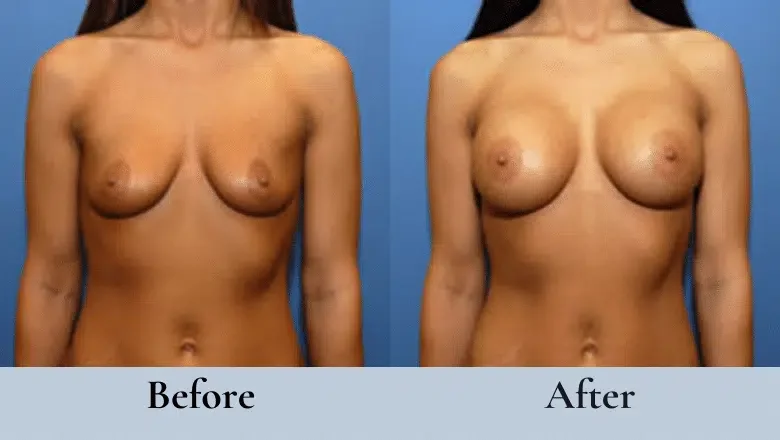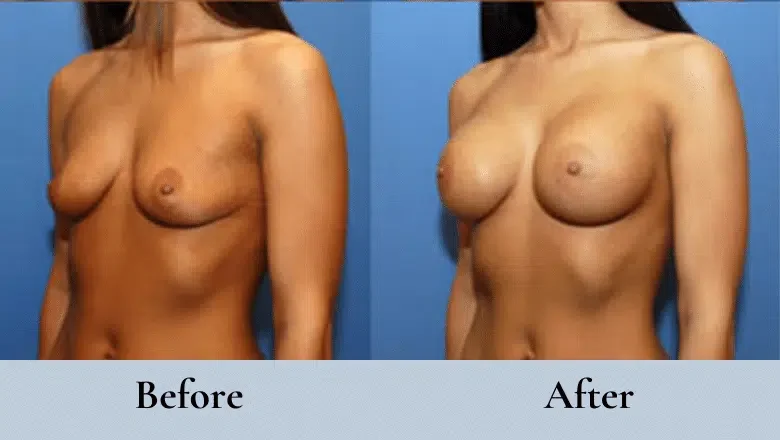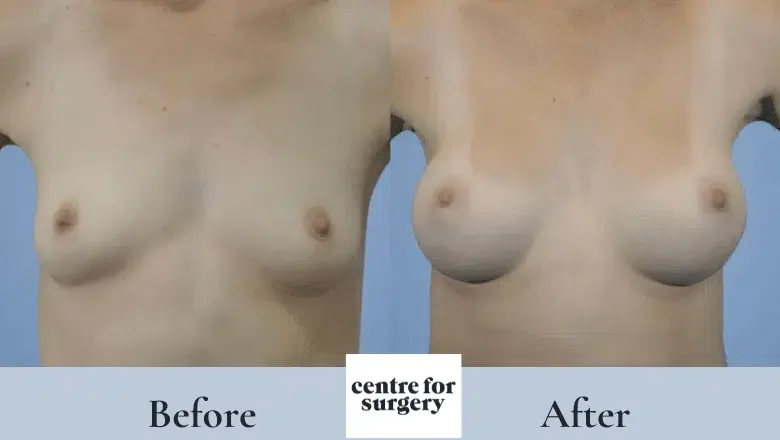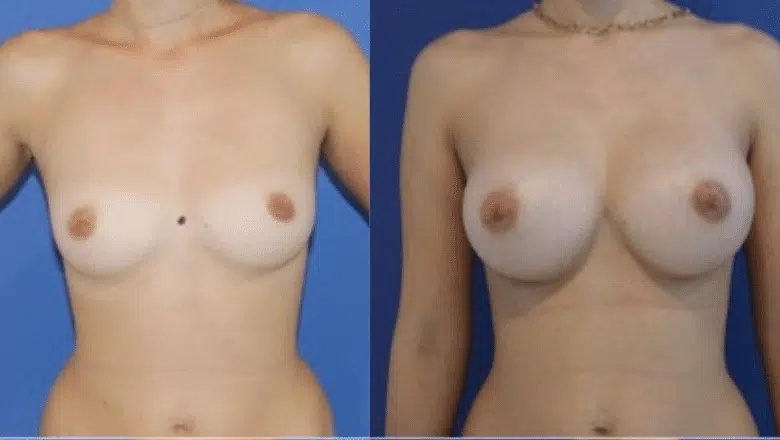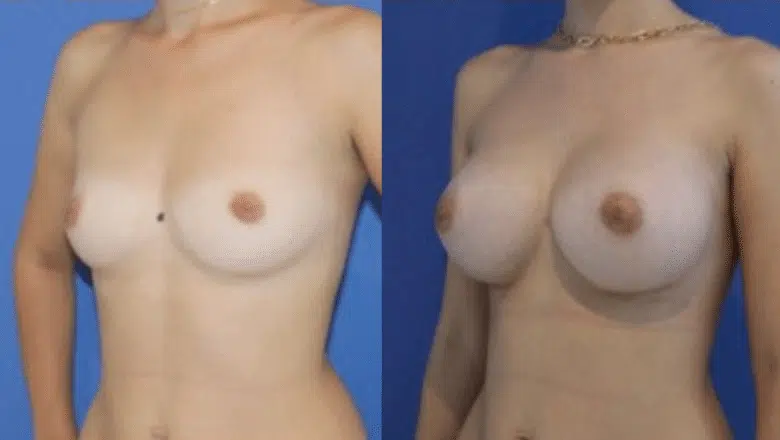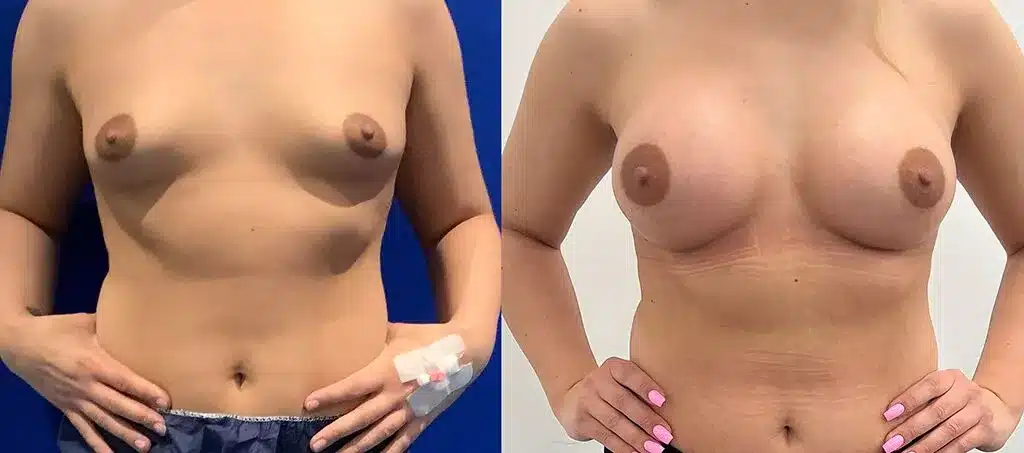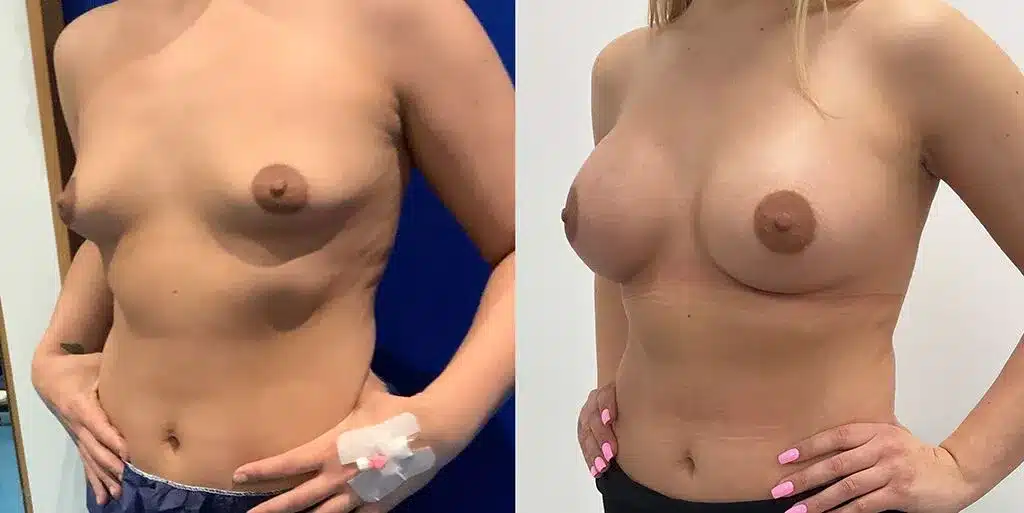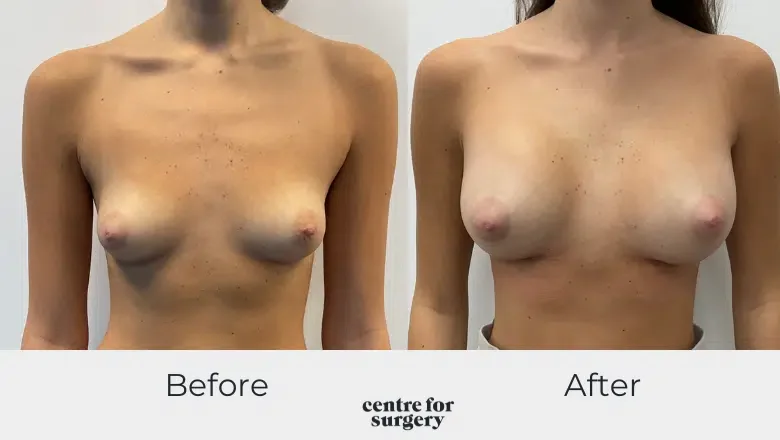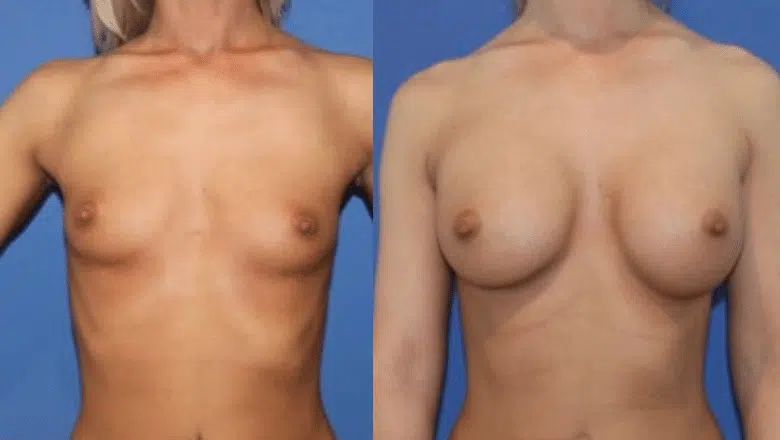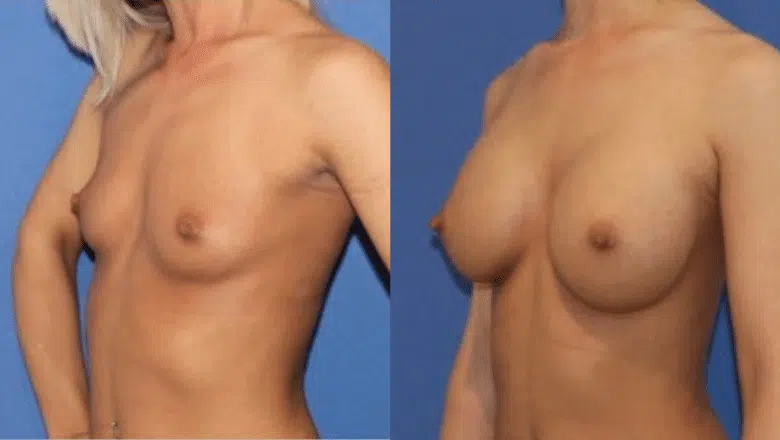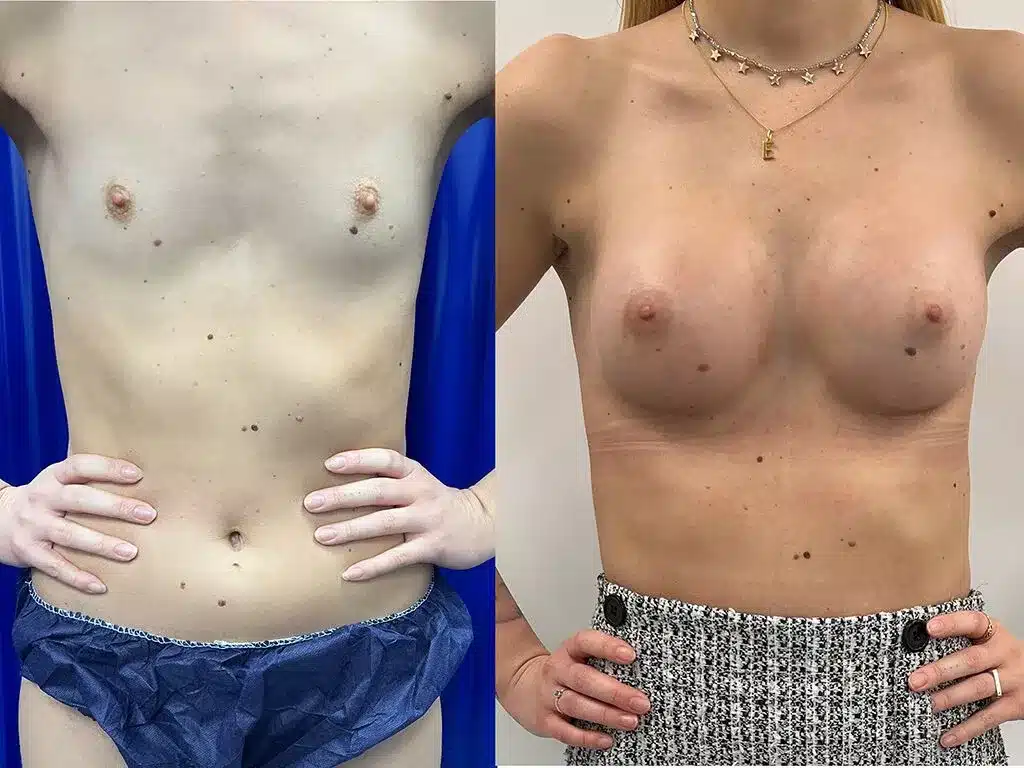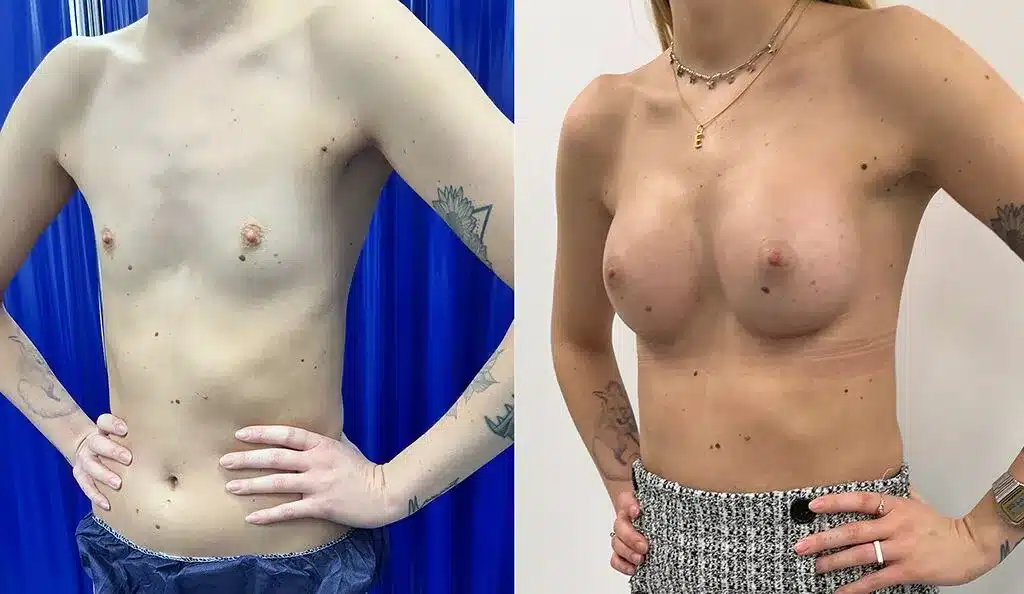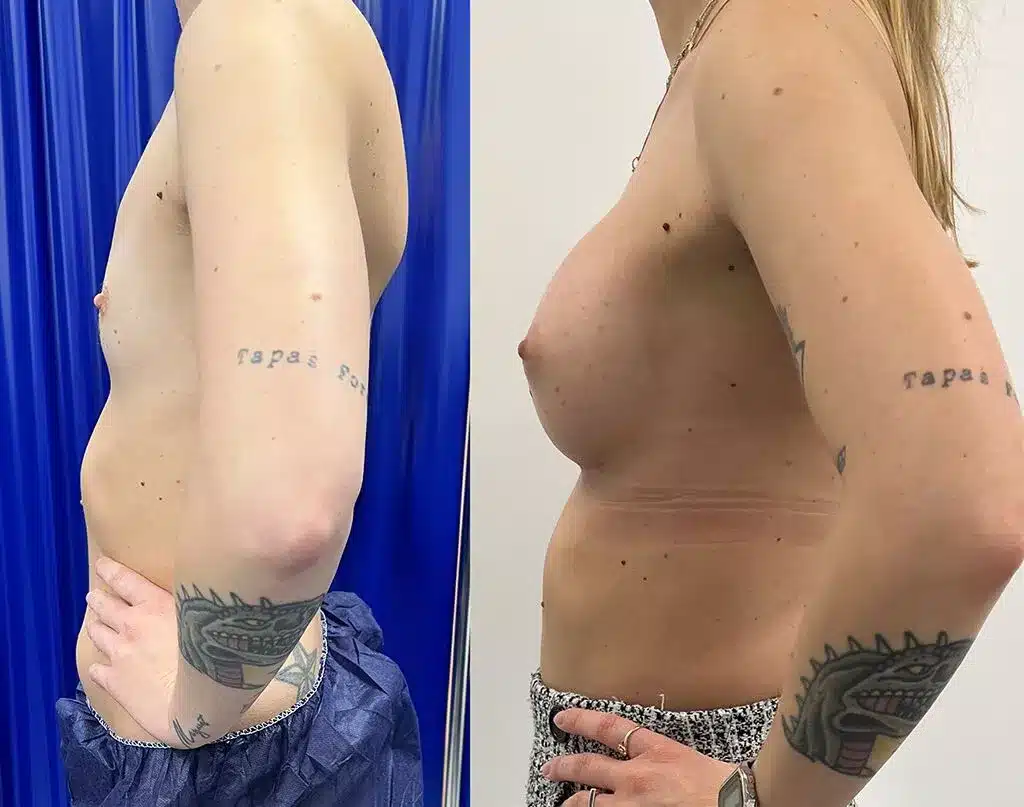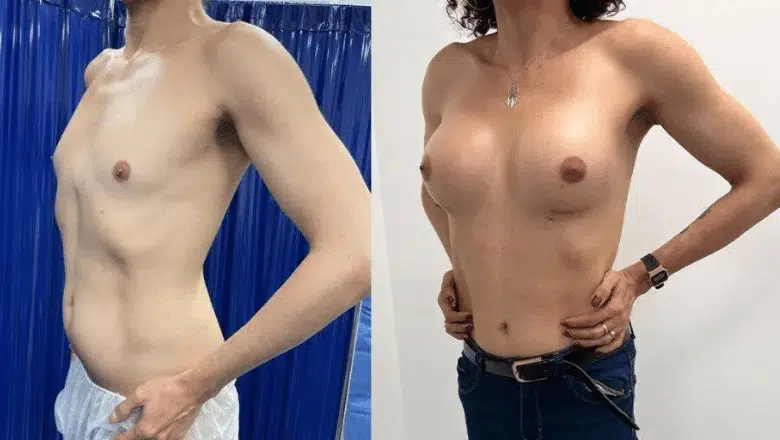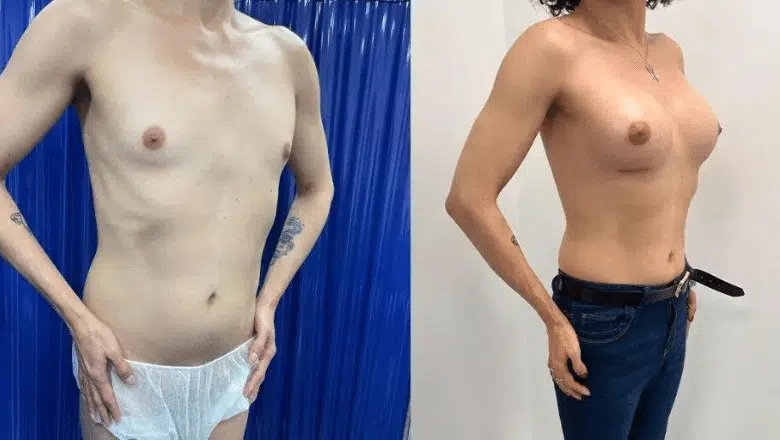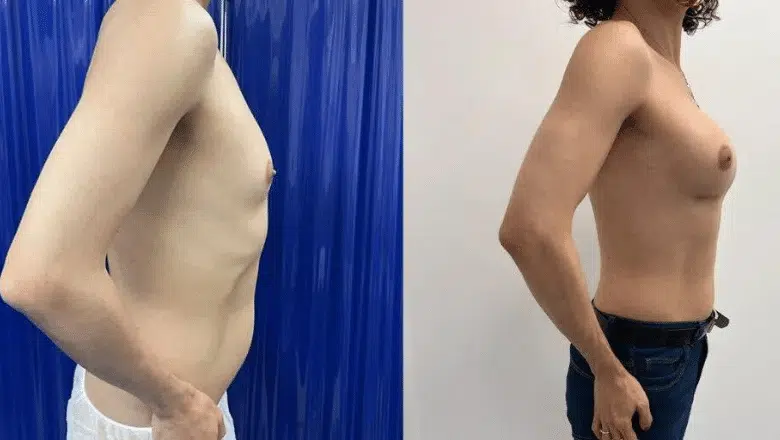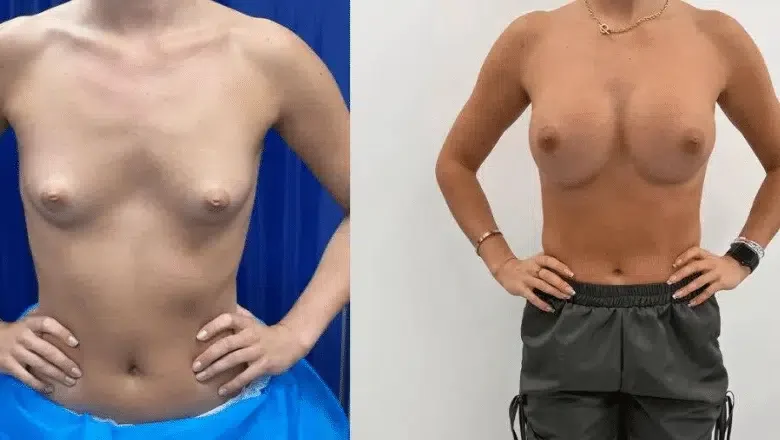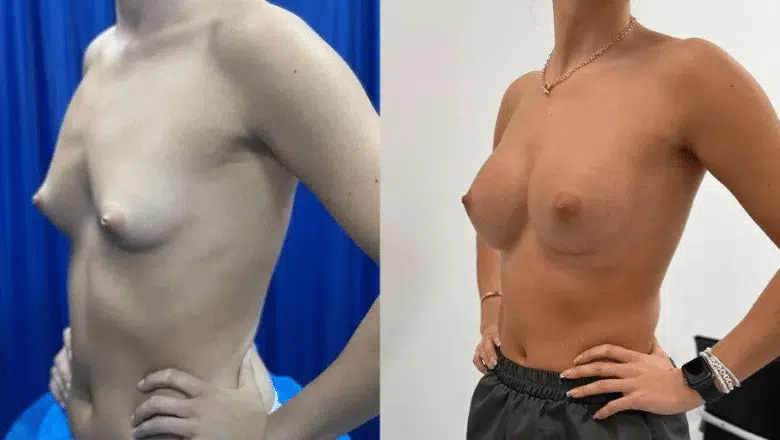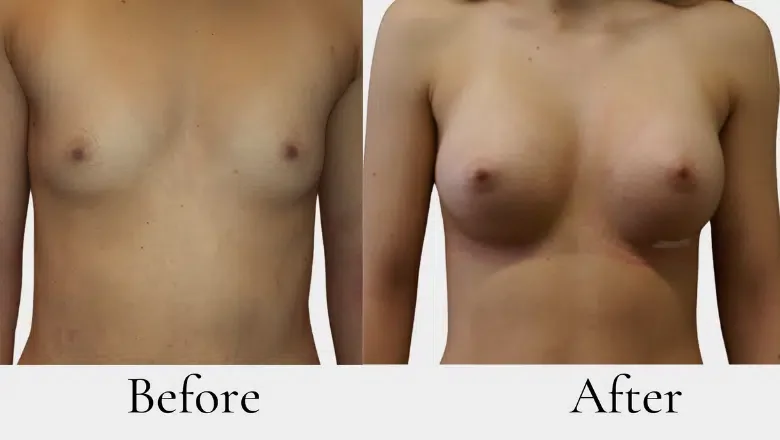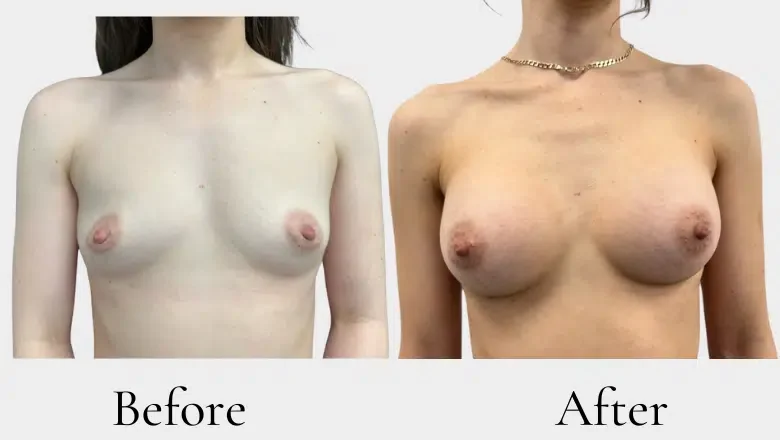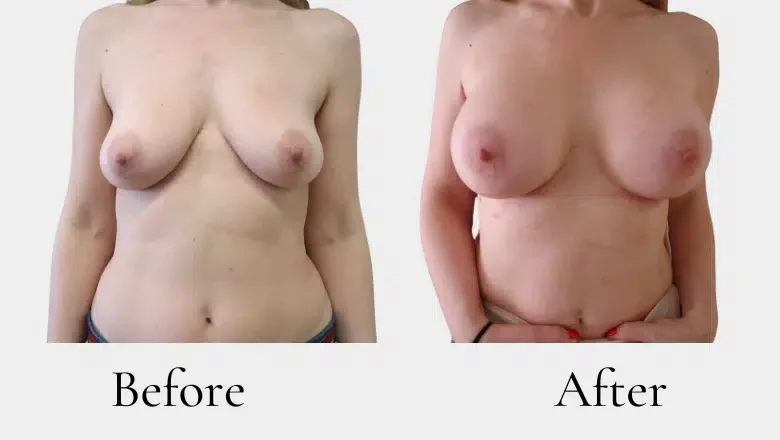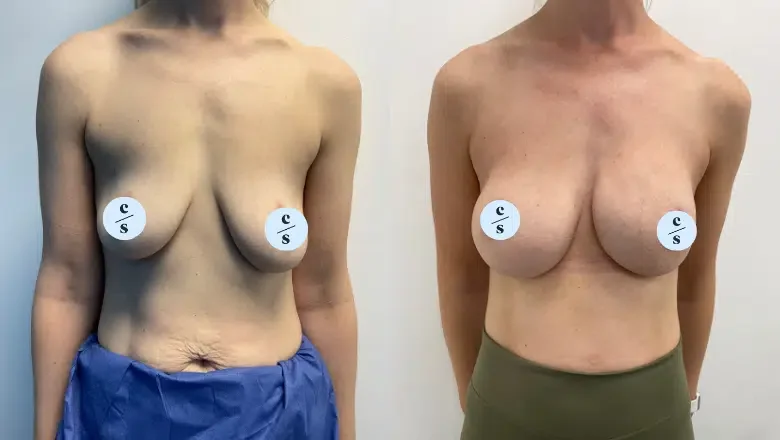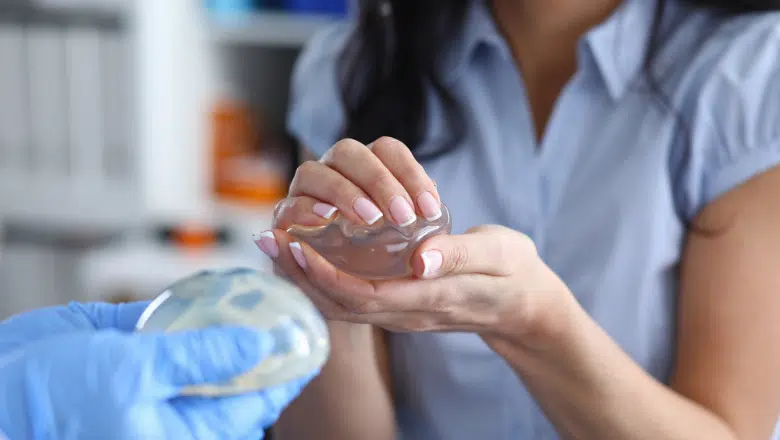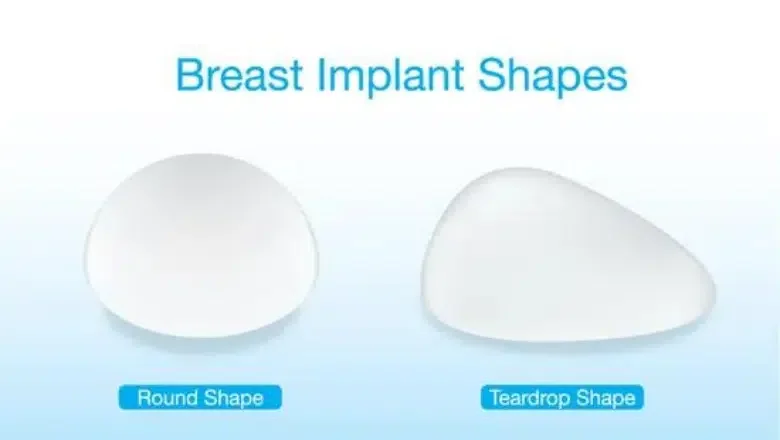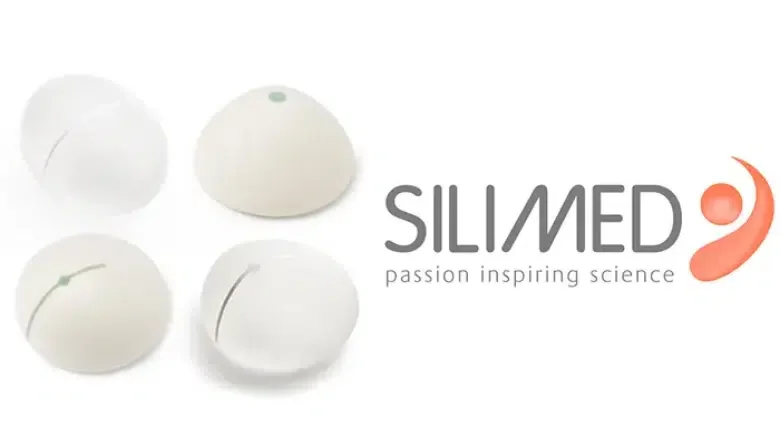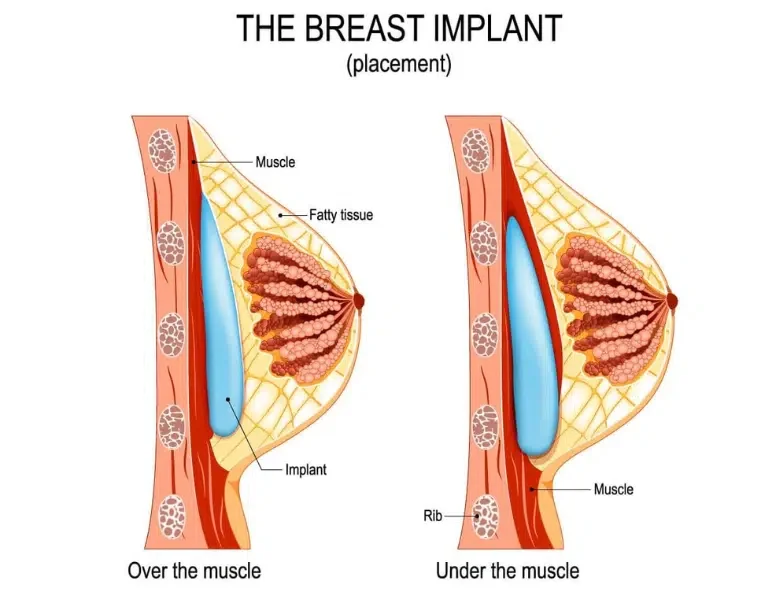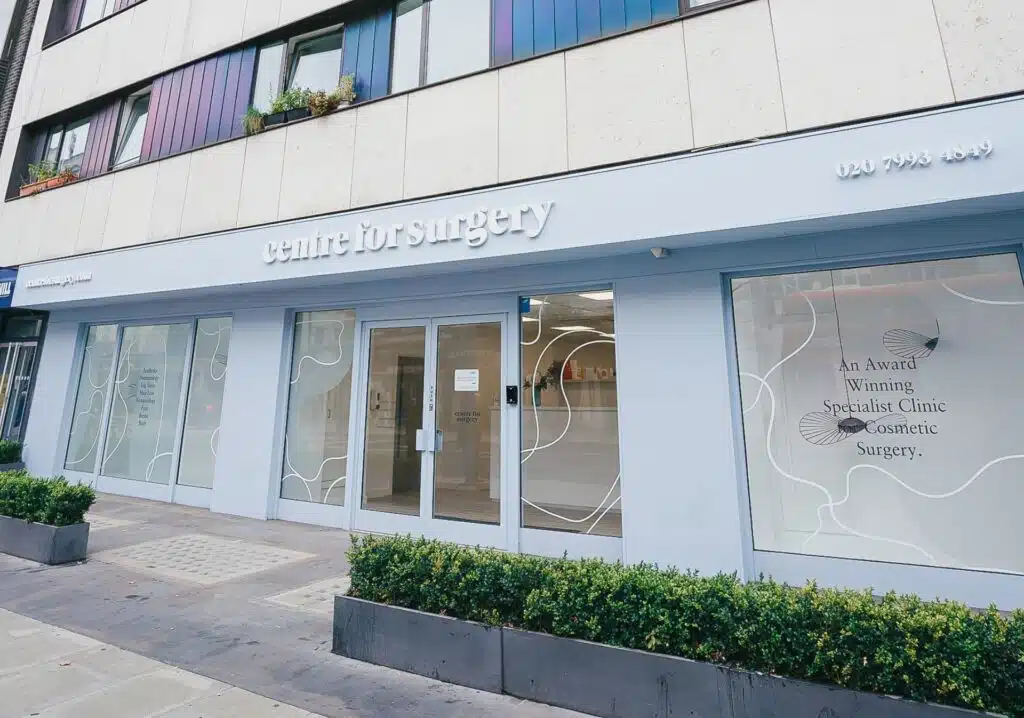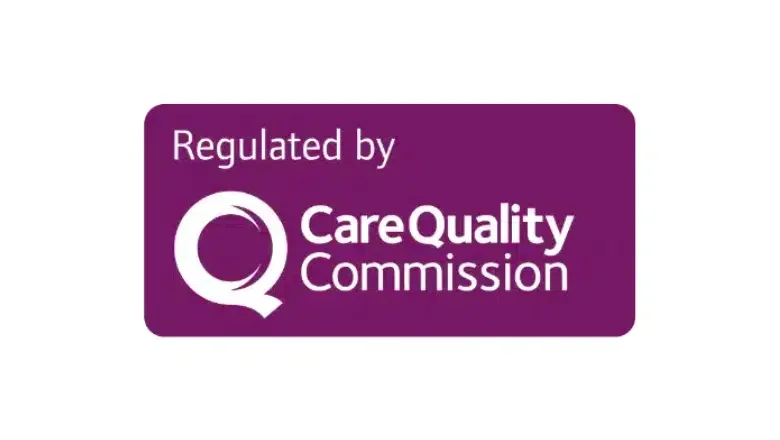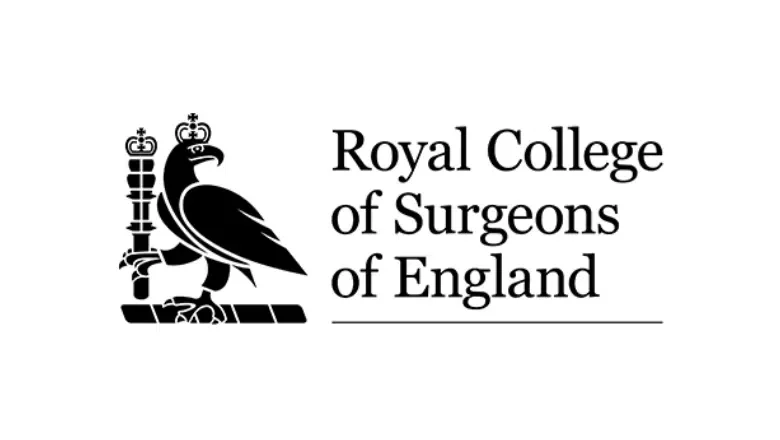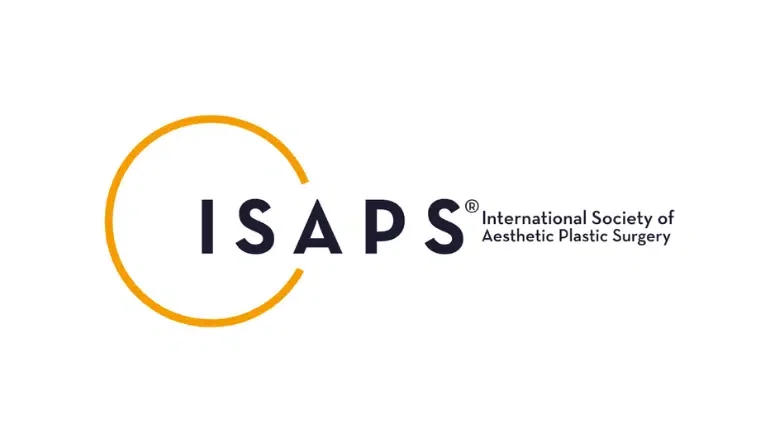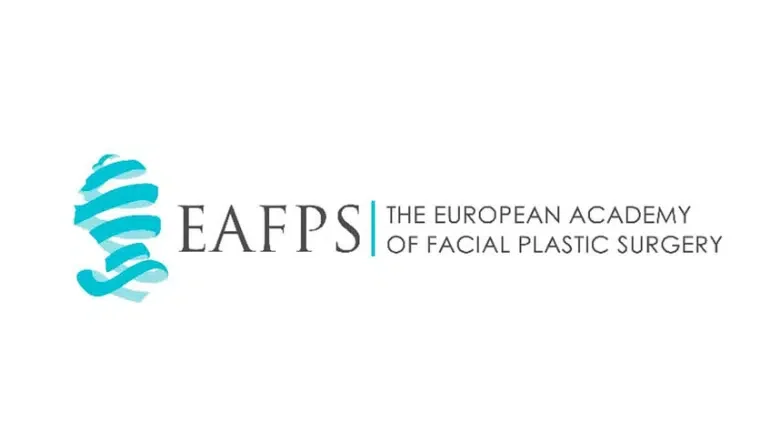Breast Augmentation & Enlargement with Implants
It is not uncommon for individuals to feel unhappy with the size or shape of their breasts and consider breast implants as a potential solution. Breast enlargement surgery with implants is currently the most popular cosmetic procedure at Centre for Surgery and the most popular cosmetic surgery in the UK.
Breast implants can help achieve a variety of goals, such as restoring breast size, shape, position, and firmness after pregnancy, weight loss, or ageing, or even achieving a new desired breast shape altogether. Whatever the reason, it’s essential to undergo a consultation with a qualified plastic surgeon to discuss your individual needs and goals and determine the best course of action.
At Centre for Surgery, our experienced surgeons take the time to conduct a thorough one-on-one consultation, discussing all available options with you and answering any questions or concerns you may have. Our state-of-the-art plastic surgery clinic on Baker Street in central London provides a safe and comfortable environment for breast augmentation surgery.
RELATED: Breast Augmentation FAQs – Q&A about Breast Implant Surgery
All Silimed breast implants have a ten-year warranty for both capsular contracture and implant rupture. You’ll also be reviewed by your specialist surgeon regularly during the first twelve months after your procedure to monitor healing and recovery. Our after-care support package for breast surgery is truly comprehensive. We’ll be calling you regularly to check how you are doing, along with regular assessments by our expert nursing team and your surgeon.
You may also wish to combine breast augmentation with a breast uplift or fat transfer to the breasts. We offer all the options – not just breast implants, by specialist plastic surgeons fully trained in aesthetic and reconstructive breast surgery.
| Breast augmentation | Fast facts |
|---|---|
| Procedure time ⏳ | 1-2 hours |
| Anaesthetic type 💉 | General anaesthetic |
| Length of stay 🛏 | Day case |
| Up and mobile 🚶🏻♂️ | Same day |
| Washing 🛁 | 1 week |
| Travel ✈️ | 3 weeks |
| Sexual activity ❤️ | 6 weeks |
| Driving 🚗 | 1 week |
| Back to work 📅 | Next day (desk work) |
| Postoperative garment 👕 | Support bra 6 weeks |
| Sleeping 😴 | Elevated on back 6 weeks |
| Exercise 🏃🏽♀️ | 6 weeks |
| Full recovery 🕺🏻 | 6 weeks |
| Final results 😃 | 6-12 weeks |
Breast Augmentation Before & After Photos
At Centre for Surgery, we only show photos of breast enlargement patients with full written consent to allow their images on our website.
What is Breast Augmentation?
Breast augmentation, often known as a breast enhancement or a ‘boob job,’ is one of the most sought-after cosmetic surgeries. Its primary aim is to improve the overall look of the breasts by increasing their size and enhancing their shape. This procedure can be accomplished through several methods, including the insertion of implants, the transfer of fat from another area of the patient’s body, or a combination of both techniques, known as composite breast augmentation.
Many individuals choose breast augmentation for various reasons. Some wish to add volume to their breasts, enhancing their size and fullness. Others seek to correct imbalances, aiming for symmetry in shape and size, which contributes to a more balanced and aesthetically pleasing figure. This enhancement often leads to increased self-assurance, empowering individuals to feel more comfortable and confident in their choice of attire, especially those that are form-fitting.
Our specialists excel in the art of composite breast augmentation. This advanced procedure merges the benefits of both fat transfer and implant insertion, offering patients a chance to achieve enhanced volume while preserving the breasts’ natural look and feel. During a comprehensive consultation at our Baker Street clinic in Marylebone, our expert surgeons will assess your suitability for the procedure and recommend the most effective approach tailored to your specific needs.
Benefits of Breast Augmentation with Implants Surgery
Breast augmentation involves using breast implants to enhance the size and shape of the breasts. The procedure can provide several benefits to patients who are self-conscious about the size or shape of their breasts or who have experienced changes in their breast size or shape after pregnancy or weight loss.
Increased breast size
The most obvious benefit of breast augmentation is an increase in breast size. This can be especially beneficial for women who have always felt self-conscious about the size of their breasts or who have experienced changes in breast size after pregnancy or weight loss.
Improved breast shape
Another benefit of breast augmentation is the ability to improve the shape of the breasts. This can be particularly beneficial for women who have asymmetrical breasts or who have experienced changes in breast shape after pregnancy or weight loss.
Increased self-confidence
Perhaps the most significant benefit of breast augmentation is the boost in self-confidence that many women experience after the procedure. Many women feel more attractive, feminine, and self-assured after breast augmentation.
Clothes fit better
With larger breasts, clothes will fit better and look more flattering.
Better proportions
Breast augmentation can improve the overall proportions of a woman’s body by balancing out the hips and waist with larger breasts.
Breast Implant Options
When considering breast augmentation, one of the most important decisions you will make is choosing the type of implant that is right for you. There are several options available, including silicone, saline, and alternative options such as fat transfer.
RELATED: Breast Implant Options
Each type of implant has its own benefits and drawbacks, and it is important to consult with a specialist plastic surgeon to determine which option is best for you.
RELATED: Silicone vs Saline Breast Implants
Silicone implants
Silicone implants are filled with a cohesive gel that closely mimics the feel of natural breast tissue. These implants are pre-filled and come in a variety of sizes and shapes. They are known for providing a more natural look and feel compared to saline implants.
Saline implants
Saline implants are filled with sterile salt water and come in a variety of sizes and shapes. They are inserted empty and then filled once they are in place, which can make them a good option for women with smaller breast tissue. They are less expensive than silicone implants.
Alternative options such as fat transfer
Alternative options to traditional breast implants include fat transfer to the breasts, which uses the patient’s own fat to enhance the size and shape of the breasts. This is a less invasive procedure that results in a natural look and feel, but it does not provide as much volume as silicone or saline implants.
Textured vs Smooth Implants
Both silicone and saline implants are available in both textured and smooth varieties. Textured implants are less likely to rotate, which can be beneficial if you are at risk of capsular contracture. However, they have been linked to a rare type of cancer called Breast Implant-Associated Anaplastic Large Cell Lymphoma (BIA-ALCL).
RELATED: Does Breast Implant Texture Affect the Risk of Complications?
We also recommend you read the guidance on BIA-ALCL from the UK government to learn more about the slight risk of BIA-ALCL.
Implant shape
Breast implants are available in two basic shapes: round and teardrop (anatomical) shaped. Round implants tend to look more full and round, while teardrop-shaped implants are designed to mimic the natural shape of the breast.
Why Choose Breast Implants from Silimed?
Choosing the right breast implants is a major decision. At Centre for Surgery, we trust Silimed implants because they offer safety, reliability, and natural-looking results. With over 40 years of experience, Silimed is a globally recognised brand, known for producing high-quality implants used in over 70 countries.
Silimed implants are made with medical-grade silicone and meet strict international safety standards, including the CE mark. Their textured and polyurethane-coated options are especially valued for reducing the risk of complications like capsular contracture. Patients benefit from a wide range of shapes and sizes, including round and teardrop designs, which allow for a tailored fit.
The implants are soft to the touch but hold their shape over time, giving a natural feel that lasts. Many patients appreciate the confidence Silimed brings — not just in appearance, but also in knowing the implants are backed by a strong safety record and manufacturer warranty.
Choosing the Right Breast Implant Size
Choosing the right breast implant size is a crucial part of the breast augmentation process. It can have a significant impact on the overall outcome and your satisfaction with the procedure. Here are some factors to consider when choosing the right breast implant size:
Body Proportions
The size of the breast implant you choose should be in proportion to your body type. For example, if you have a petite frame, excessively large breast implants may look disproportionate and unnatural. On the other hand, if you have a larger build, smaller breast implants may not be noticeable or provide the desired outcome.
Current Breast Size
Your current breast size can also play a role in determining the appropriate implant size. If you have little to no breast tissue, you may require a larger implant to achieve the desired volume. Conversely, if you already have some natural breast tissue, a smaller implant may suffice.
Lifestyle and Activities
Your lifestyle and the activities you participate in should also be considered when choosing the right breast implant size. For instance, if you are an athlete or engage in high-impact activities, larger implants may not be practical or comfortable for you.
Goals and Preferences
The outcome you desire and your personal preferences also play a role in selecting the right breast implant size. For instance, a smaller implant may be the best option if you prefer a more natural look. Alternatively, if you prefer a more dramatic change, larger implants may be suitable.
RELATED: Choosing The Right Implant Size – London Guide to Breast Implant Size
Breast Implant Placement - Under or Over the Muscle?
Breast implants can be placed over the pectoralis muscle (sub-glandular) or under the pectoralis muscle (sub-muscular). Technically only the upper part of the implant is under the muscle in the dual plane technique, with the lower part not covered by the pectoralis muscle. The position of the implant above or below the muscle will influence the final appearance of your breast enhancement and depends on several factors, including the amount of breast ptosis (or sag). Implants placed in a fully submuscular position are used primarily for breast reconstruction surgery.
Breast implant placement is an important consideration in breast augmentation surgery. The two most common options are submuscular (under the chest muscle) and subglandular (over the chest muscle) placement. Here are the pros and cons of each option:
Submuscular Implant Placement:
Pros:
- A submuscular placement can provide more coverage for the implant, resulting in a more natural-looking breast.
- This placement can also reduce the risk of capsular contracture, a condition where scar tissue forms around the implant, causing it to harden and potentially change shape or position.
- Submuscular placement can also reduce the risk of implant rippling and improve mammogram accuracy.
Cons:
- Submuscular placement can result in a more extended recovery period since the muscle needs time to heal and adjust to the implant.
- There may be increased discomfort initially, as the muscle may be stretched and strained during the healing process.
- This placement can also cause more restrictions on physical activity during the recovery period.
Subglandular Implant Placement:
Pros:
- Subglandular placement typically results in a quicker recovery period since there is no need for the muscle to heal.
- This placement can also provide a more straightforward procedure, making it more accessible for patients who may not be good candidates for submuscular placement.
- Subglandular placement can provide more projection to the breast.
Cons:
- Subglandular placement may result in a less natural-looking breast since there is less tissue covering the implant.
- This placement can also increase the risk of capsular contracture, rippling, and implant visibility.
- Subglandular placement can make mammograms less accurate, as the implant can obscure breast tissue.
RELATED: Best Breast Implant Placement – Over the Muscle, Under the Muscle or Dual Plane?
Who is a Good Candidate for Breast Augmentation Surgery?
Breast augmentation surgery is a transformative procedure that caters to individuals looking to enhance the size and shape of their breasts. Understanding who makes an ideal candidate for this surgery is crucial for achieving desirable outcomes and ensuring patient satisfaction. If you’re considering breast augmentation, here’s a guide to help you determine if you’re a good fit for this procedure.
To be considered an ideal candidate for breast augmentation, individuals must meet several important criteria. Firstly, it’s essential that the person has reached adulthood and their breasts have fully developed. This ensures that the body has reached its mature state, making the outcomes of the surgery more predictable and stable.
Physical and psychological health plays a pivotal role in the candidacy for breast augmentation. Individuals should be in good overall health without any underlying conditions that could complicate the surgery or recovery process. A body mass index (BMI) lower than 30 is generally recommended to minimise the risk of complications and to support a smoother recovery. Equally, having a positive mental health status is important for understanding the procedure’s implications and having realistic expectations regarding the results.
An essential requirement for those considering fat transfer breast augmentation is having an adequate amount of fat available for harvesting. This procedure involves transferring fat from other parts of the body to the breasts, necessitating a sufficient fat reserve that can be safely extracted and used for enhancement.
Potential candidates should possess a genuine desire to enhance the appearance of their breasts due to concerns over their size, shape, or volume. This could stem from natural variations, changes after pregnancy or weight loss, or a desire to achieve a more balanced physique.
While this surgery can significantly enhance the appearance of the breasts, it’s important for individuals to understand the limitations and have a clear and realistic view of the potential outcomes.
How to prepare for Breast Augmentation
Preparing for breast augmentation surgery involves several steps. It is essential to have realistic expectations, understand the risks and benefits, and follow your surgeon’s instructions.
Consultation
Please schedule a consultation with one of our plastic surgeons at Centre for Surgery to discuss your goals, medical history, and the options available. Your surgeon will also assess your physical condition and determine if you are a good candidate for the procedure.
Preoperative Instructions
Your surgeon will provide you with detailed instructions on how to prepare for the surgery, including information on medications to avoid, dietary restrictions, and any necessary lab work or imaging.
Stop smoking
If you are a smoker, it is important to stop smoking at least 4-6 weeks before the surgery, as smoking can impede wound healing and increase the risk of complications.
Avoid certain medications
You will be instructed to avoid certain medications, such as aspirin and anti-inflammatory drugs, which can increase bleeding during and after the surgery.
Arrange for help
Arrange for a responsible adult to drive you home and stay with you for the first 24 hours after the surgery, as you cannot drive or take care of yourself immediately after the procedure.
Make sure you have the right clothing
Make sure you have comfortable, loose-fitting clothing for after the surgery and a supportive bra that can accommodate the bandages and dressings.
Breast Augmentation Procedure
The breast augmentation procedure is performed as a day-case surgery at our specialist day surgery unit on Baker Street. You can commence your recovery at home the same afternoon. Breast enlargement surgery is carried out under TIVA general anaesthesia. The procedure takes, on average, from one to two hours to complete.
Breast Augmentation step-by-step
STEP 1: After the injection of local anaesthesia, an incision is performed under the breasts (infra-mammary incision). Using a breast funnel, this incision has become smaller over the years – sometimes measuring 3.5cm or less. An average length of 4-5 cm is the norm.
STEP 2: Forming the new breast pocket. A pocket will be created either on top of the muscle (sub-glandular) or under the chest muscle (dual plane). This pocket is specially designed to match the dimensions of the new breast implants to be inserted.
STEP 3: Insertion of breast implants with Breast Funnel. The Breast Funnel facilitates a ‘no-touch’ insertion technique with many advantages compared to older manual techniques. Contamination is minimised with the Breast Funnel.
STEP 4: Incision closure. The surgeon will use a three-layered closure for maximum security using dissolvable sutures. There is, therefore, no need for potentially uncomfortable suture removal one week later.
STEP 5: Application of post-surgical bra. A specially designed bra with a breast band will be applied after the procedure.
RELATED: Choosing the Right Bra After Breast Implant Surgery
Recovery after Breast Augmentation
Recovery after breast augmentation is a critical period that requires proper care and attention to ensure optimal healing and minimize the risk of complications. Here is a week-by-week guide to the recovery process after breast augmentation surgery:
Week 1:
During the first week after surgery, it’s essential to rest as much as possible and avoid any strenuous activities. Your surgeon may provide you with a compression garment or surgical bra to wear to help reduce swelling and support your breasts. You may experience some pain, swelling, and bruising during this period, and you will need to take pain medication as prescribed by your surgeon. You should avoid lifting anything heavy or engaging in any activities that involve the upper body.
Week 2:
During the second week, you can typically return to light activities, such as walking and stretching. You should still avoid lifting heavy objects, driving, or engaging in any activities that may strain the chest muscles. Your surgeon may recommend that you continue wearing the compression garment or surgical bra to help reduce swelling and support your breasts.
Week 3:
During the third week, you may be able to resume some of your daily activities, such as driving and light exercise. However, you should still avoid any activities that involve the chest muscles, such as lifting weights or performing push-ups. You may still experience some discomfort or swelling, but it should gradually improve over time.
Week 4:
By the fourth week, you may be able to resume most of your regular activities. However, it’s still important to avoid any high-impact activities or heavy lifting, as well as sleeping on your stomach. You may also be able to switch to a sports bra instead of a compression garment or surgical bra.
Weeks 5-6:
During weeks 5-6, you should continue to take it easy and avoid any strenuous activities. You may still experience some swelling or discomfort, but it should continue to improve over time. Your surgeon may recommend a follow-up appointment to check your progress and ensure that everything is healing correctly.
After week 6:
After six weeks, most patients are fully recovered and can resume all of their regular activities. However, it’s important to continue to monitor your breasts and notify your surgeon if you experience any unusual symptoms or changes in your breasts’ appearance.
When Will I See My Final Breast Augmentation Results?
The final results of breast augmentation surgery can take several months to become apparent. By three to six months after surgery, most patients should have recovered fully, with swelling and bruising subsided significantly. The breasts should appear more even and symmetrical, with a natural-looking shape and size. The scars from the surgery should have faded noticeably, although it’s important to note that scars will continue to fade and improve in appearance over time.
Risks of Breast Augmentation Surgery
As with any surgical procedure, breast augmentation surgery comes with potential risks and complications. Here are some of the most common risks and complications associated with breast augmentation:
Infection
An infection can occur after breast augmentation surgery, which may require antibiotics or, in severe cases, implant removal.
Capsular contracture
Capsular contracture is a condition where the scar tissue that forms around the implant tightens and hardens, causing the breast to become firm and potentially painful.
Implant rupture or leak
Implants can rupture or leak, which may require implant removal and replacement surgery.
Changes in breast sensation
Changes in breast sensation can occur after breast augmentation surgery, with some women experiencing temporary or permanent numbness, tingling, or hypersensitivity.
Haematoma or seroma
Haematomas and seromas are the accumulation of blood or fluid around the implant, which may require drainage.
Changes in breast shape or position
Breast implants can sometimes shift or move, causing changes in breast shape or position, which may require revision surgery.
Scarring
All surgical procedures result in some degree of scarring, and breast augmentation is no exception. Scarring can vary from person to person and may fade over time.
Breast Implant exchange
Breast implants do not have an expiry date, but modern implants are not designed to last forever. The latest generation of breast implants used at Centre for Surgery for breast augmentation can last for 10-15 years or more without any issues. The most common reason for seeking breast implant exchange is to change an aspect of breast appearance. Less commonly, implant exchange may be required to correct problems such as wrinkling or rippling of the implant shell, capsular contracture, implant rupture and implant displacement. Breast implants and the surgical techniques used to insert them have undergone continual refinement over the last 10-15 years, allowing patients to keep their implants for longer. Silimed breast implants used at Centre for Surgery for breast augmentation have an advanced, highly cohesive, semi-solid gel material. If the implant’s outer shell were to be damaged in some way, then the contents of the implant remain entirely inside the implant shell and do not leak out in any way.
Breast Augmentation Cost London - How much is Breast Enlargement in London UK? Implant Prices & Fees
Breast augmentation surgery is a personalised procedure, and the cost can vary from patient to patient, depending on several factors. These factors include the type of procedure, the type of implants chosen, the results desired, and the time required in the operating room. Breast augmentation with Silimed implants typically starts from £4995.
The cost of breast augmentation surgery may also depend on whether additional procedures, such as a breast lift or fat transfer, are required to achieve the desired outcome. In some cases, breast augmentation may be part of a more extensive transformation, such as a mummy makeover.
The total cost of breast augmentation surgery typically includes the surgeon’s fee, anaesthetist fee, the cost of the breast implants, hospital fees, and surgical aftercare and support. It’s essential to note that since breast augmentation is usually a cosmetic procedure, it does not qualify for NHS funding.
During your consultation with a plastic surgeon, they will review your medical history, perform a comprehensive assessment of your body and breasts, discuss any risks and concerns, and provide you with an accurate cost estimate for your breast implant surgery.
We offer a range of payment plans to help make breast augmentation surgery more affordable for our patients.
RELATED: How much do breast implants cost?
Can I get Breast Implants on Finance?
Centre for Surgery is fully approved to offer finance for breast augmentation via our specialist finance partner, Chrysalis Finance. You no longer need to use your savings to pay for your treatment – you can apply to spread the cost of your procedure with Chrysalis Finance using their simple 1,2,3 application to pay for your procedure. Don’t wait until you have enough money for your treatment. Apply today for boob job finance and (subject to status) pay for your boob job procedure easily in monthly instalments using one of their payment options. Chrysalis Finance is the only ethical provider focusing solely on providing specialist financing for medical procedures, including breast augmentation.
RELATED: How to finance breast implants
Combining Breast Augmentation with Tummy Tuck and Breast Lift
When it comes to achieving a harmonious and aesthetically pleasing body contour, combining surgical procedures can offer significant advantages. Breast augmentation, when performed in conjunction with a tummy tuck or breast lift, can provide comprehensive results that address multiple areas of concern in one cohesive treatment plan. Let’s explore the benefits and considerations of these combined surgical approaches.
Breast Augmentation and Tummy Tuck: The Mummy Makeover
A tummy tuck, scientifically known as abdominoplasty, is a transformative procedure designed to sculpt the abdomen into a firmer and smoother profile. It meticulously removes excess skin and fat while tightening the abdominal muscles, culminating in a flatter, more toned stomach. When pregnancy and motherhood bring about physical changes like sagging breasts and a stretched abdomen, many women turn to a combined approach for rejuvenation. This integrated procedure, popularly termed a ‘mummy makeover‘, addresses both areas, allowing for a simultaneous restoration of the abdomen and breast areas.
Opting for breast augmentation in conjunction with a tummy tuck offers the convenience of a single recovery period, reducing overall downtime compared to undergoing each surgery separately. This combined approach not only enhances the silhouette but also streamlines the surgical journey, making it a practical choice for comprehensive rejuvenation.
Breast Augmentation and Breast Lift
A breast lift, or mastopexy, elevates and reshapes the breasts by removing surplus skin and tightening the surrounding tissue, resulting in a more youthful and lifted appearance. When combined with breast augmentation, this dual procedure can significantly enhance both the size and the shape of the breasts, fulfilling the desire for a fuller, more pronounced bust line.
RELATED: Breast Lift with Implants
This synergistic procedure caters to those looking to elevate their breast aesthetics beyond what augmentation or a lift can achieve alone. The augmentation adds volume and fullness, while the lift corrects sagging, ensuring the breasts not only look larger but also naturally perky and well-positioned. This combination is particularly beneficial for individuals seeking a dramatic improvement in both breast volume and elevation, offering a rejuvenated breast profile that radiates youthfulness and vitality.
Breast Augmentation with Implants at Centre for Surgery
At Centre for Surgery, we’re dedicated to providing our patients with state-of-the-art breast augmentation procedures that enhance physical appearance and boost self-confidence and well-being. Our expert team, led by renowned plastic surgeons, employs the latest techniques and technologies in breast augmentation to ensure outstanding results tailored to each patient’s desires and needs.
Why Choose Centre for Surgery?
Choosing Centre for Surgery for your breast augmentation journey means placing your trust in a clinic recognised for its excellence, patient-centred care, and unparalleled expertise. Here’s what sets us apart:
Expertise and Personalisation
Our surgeons possess a profound understanding of the aesthetics of breast enhancement, offering personalised consultations to devise a treatment plan that aligns perfectly with your goals.
State-of-the-Art Facility
Located at 95-97 Baker Street, London, our clinic combines a welcoming atmosphere with the latest medical technologies, ensuring your comfort and safety throughout the journey.
Comprehensive Care
From your initial consultation through to post-operative care, our team provides continuous support, ensuring a smooth and reassuring experience.
Patient Testimonials
Emma’s Journey: “Choosing Centre for Surgery was the best decision I ever made. The staff were incredibly supportive, and my surgeon was attentive and understanding. The results? Absolutely transformative. I’ve never felt more confident in my life.”
Sophie’s Experience: “The professionalism and care at Centre for Surgery surpassed all my expectations. From the detailed consultation to the excellent aftercare, I felt valued and listened to every step of the way. My results are stunning, and I couldn’t be happier.”
Aiden’s Transformation: “As a male patient undergoing breast reduction, I was initially nervous, but the team at Centre for Surgery made me feel completely at ease. Their expertise and reassurance were invaluable. My only regret is not doing it sooner. The impact on my confidence and lifestyle has been immense.”
Book Your Consultation Today
Ready to take the next step towards achieving the silhouette you’ve always desired? Contact our friendly team to book your personalised consultation. Discover the possibilities of breast augmentation with implants tailored to your unique physique and aspirations.
📞 Phone: 0207 993 4849
📧 Email: contact@centreforsurgery.com
📍 Address: 95-97 Baker Street, London W1U 6RN
For more detailed information about our services, expertise, and what makes us the leading choice for breast augmentation:
- About Us: Learn more about Centre for Surgery
- Finance Options: Explore our finance options including 0% APR to make your transformation more affordable.
- Plastic Surgery Blog: Delve into our plastic surgery blog for insights, patient stories, and the latest advancements in cosmetic surgery.
- Clinic FAQs: Have questions? Our clinic FAQs offer comprehensive answers to help you feel informed and confident in your decision-making process.
- Baker Street Clinic: Discover our premier location at 95-97 Baker Street for unparalleled care in the heart of London.
At Centre for Surgery, we’re committed to helping you achieve your aesthetic goals with care, compassion, and exceptional surgical expertise. Let us be part of your journey to a more confident and radiant you.
FAQs
-
What is Breast Augmentation ?Breast augmentation or breast enlargement is a cosmetic surgery procedure that is designed to increase the size of the female breasts with the insertion of silicone breast implants. The breast implants are inserted into the breasts and can be either above or below the chest muscle known as the pectoralis muscle.
Breast augmentation can also be carried out using fat grafting. This procedure is also known as breast lipofilling or fat transfer breast enlargement. Fat is harvested from an area of the body such as the abdomen using liposuction before being injected into the breasts. An advantage of fat transfer is that it does not involve the use of an implant. The fat is taken from your own body. -
What Is the Difference Between Breast Augmentation and Breast Implants?Breast augmentation is the surgical process used to increase breast size. In contrast, breast implants are the actual medical devices inserted during this surgery to enhance the breast size.
-
What Exactly Does Breast Augmentation Entail?Breast augmentation is a surgical procedure that enlarges the breasts. This is typically done by inserting breast implants to increase breast volume.
-
What are the Benefits of Breast Implants?Breast implants can offer several benefits for women seeking to enhance their breasts' size, shape, or symmetry. Some of the potential benefits of breast implants include the following:
Improved self-confidence: Many women feel more confident and attractive after breast augmentation surgery, which can improve their overall quality of life.
Increased breast size: Breast implants can increase breast size and improve breast shape, creating a more feminine and proportional silhouette.
Improved symmetry: Breast implants can help correct breast asymmetry, which can be a source of insecurity for some women.
Improved clothing fit: Women with breast implants may find that clothing fits better and looks more flattering, boosting their self-esteem.
Improved body proportion: Breast implants can create a more balanced and proportional appearance, enhancing overall body proportions. -
What's the Quickest Method to Enlarge Breasts?While some suggest that breast massage and a healthy diet might help in increasing breast size, the only reliable and effective method is undergoing breast implant surgery. Alternatively, for a temporary effect, a push-up bra can create the illusion of larger breasts.
-
What are the aspects to be aware of when considering breast augmentation?At Centre for Surgery, breast augmentation is carried out under TIVA general anaesthetic as a day-case procedure. This means you can recover at home later the same day following your procedure.
- Incision site:
There are several locations for placement of the incision for breast implant surgery. The most widely used and best incision is the inframammary incision which is situated in the fold beneath the breast. With bras that contain an underwire, the wire would be positioned directly over the site of the scar. Other less commonly used incisions include the periareolar incision which is made around the nipple and the axillary approach located in the armpit. The axillary approach requires a specialised endoscope for optimum placement of the breast implant and is a very popular incision site in Korea. The inframammary scar is often no more than 4-5 cm in length, and thanks to the Keller funnel method of insertion, this has gotten smaller in recent years.
- Type of breast implant:
There are two common types of implant shapes, round and shaped implants. Shaped or anatomical implants come in a textured form to minimise the risk of implant rotation. Breast implants come in a wide range of sizes, and the correct size for you is based on your preoperative chest wall measurements.
- Implant profile
Breast implants come in 3-4 different profiles, which are low, medium, high, and extra high profile. The implant profile is used to describe the degree of projection of the implant from the chest wall. Low-profile implant projects less and has a more rounded edge to the implant, which is thought to confer a more ‘natural look’. Higher profile implants have a sharper edge to the implant, which can result in more cleavage and is also known as the ‘fake look’.
- Implant volume
At your consultation, you and your surgeon will reach an agreement on the correct size of implant to use, which is measured in cc’s. Choosing the desired cup size does not translate accurately into correct breast implant sizes and is not used at your consultation. This is because there is no standardised definition of cup size.
- Implant placement:
Breast implants are inserted into one of two planes, above or below the chest wall muscle, also known as the pectoralis muscle. The choice of placement depends on a number of factors, including your chest wall anatomy, the amount of soft tissue coverage, activity levels, and the expert opinion of the surgeon.
- Degree of breast asymmetry:
Virtually all women have a degree of pre-existing breast asymmetry. Breasts can vary in size, volume, shape, or position of the nipple and chest wall. This lies within the normal spectrum for women. Your surgeon will take these factors into account when planning the type and size of implant to use to correct as much as possible. However, perfect breast symmetry is not a realistic goal of surgery.
- Sutures for skin closure:
Your surgeon will use a 3-layered skin closure, and all sutures are fully dissolvable. This means no sutures must be removed at your postoperative wound check appointment with one of our nurses. Some surgeons will apply a tissue adhesive similar to super glue to seal the wound to reduce the risk of wound infection. The glue will naturally peel off after about two weeks. -
Should I have Breast Augmentation with Implants?The decision to have breast augmentation with implants is a personal one and should be based on your individual needs, goals, and preferences. It is important to carefully consider the potential risks and benefits of breast implant surgery and to consult with a qualified healthcare provider who can help you make an informed decision.
Some factors to consider when deciding whether or not to have breast augmentation with implants include:
Your overall health: Breast implant surgery is a major surgery that requires general anaesthesia, so it is important to be in good overall health before undergoing the procedure.
Your breast anatomy: Your breast anatomy, including breast size, shape, and symmetry, can impact the results of breast augmentation surgery.
Your expectations: It is important to have realistic expectations about the results of breast augmentation surgery and to understand that the procedure may not achieve perfection.
Potential risks and complications: As with any surgical procedure, breast implant surgery carries certain risks and potential complications, such as implant rupture, infection, or capsular contracture.
Recovery time: Breast implant surgery requires a recovery period, during which you may need to take time off work and limit physical activity. -
At What Age Should One Consider Breast Augmentation?The typical age for women undergoing breast augmentation is around 34 years old. However, there isn't a specific "best" age for this surgery. The important factors are good physical and mental health.
-
What to consider before having boob implants?We believe that the best outcomes after breast augmentation happen when patients make the right choice of clinic and surgeon.
1. In deciding on the right clinic for you, always carry out extensive research and choose a well-established and reputable clinic. Centre for Surgery are specialists in cosmetic surgery and breast augmentation and has been established for many years. Our patient coordinators and surgeons are here to answer any questions and empower you with the right information.
2. Your choice of surgeon should be based on their qualifications, experience, and record of good patient feedback. You should know who you will see before the consultation. At Centre for Surgery, our surgeons are specially selected after a rigorous appointment process to ensure they have the right skill set to perform breast augmentation.
3. When choosing a cosmetic surgery procedure, you should not solely base your decision on price. It is essential to ensure you are having treatment in a safe and regulated environment by staff who are both fully trained and caring to look after your needs - before, during, and after your breast augmentation procedure.
4. Avoid clinics that offer a ‘hard-sell’. If something sounds too good to be true, it probably is. Ask the surgeon what breast implants will be used for your breast augmentation procedure. Unlike many commercial chains, the Centre for Surgery has never used PIP implants and always only chooses the highest quality FDA-approved implants for breast enlargement surgery.
We believe patient safety and happy, satisfied patients are the bedrock of our reputation as an ethical cosmetic surgery provider. Our doctors are known for giving straightforward, honest advice. You can be assured that your journey with Centre for Surgery for breast augmentation will be a positive experience on the path to renewed self-confidence. -
What size of breast implant is right for me?Your desired size depends on a number of parameters. Cup size alone is not the most suitable measure. Your breast augmentation surgeon will allow you to try on a bra in your choice of size, along with a sample implant, to find the ideal size. This way, there is less room for misinterpretation and a higher chance that you will be satisfied with the outcome.
-
Which Breast Implants Feel Most Natural?In terms of texture and feel, silicone breast implants are generally considered to feel more natural compared to saline implants.
-
How to choose the best breast augmentation surgeonChoosing to have breast augmentation surgery is a huge decision for many women and it is therefore vital that all patients choose a surgeon who is highly qualified and has years of experience in carrying out breast enlargement.
A skilled breast augmentation surgeon will be able to explain the benefits of breast augmentation using implants after having taken a full medical history and examined you. He or she will be able to advise on how to look after yourself during the recovery period and what are the potential risks of breast implant surgery.
Your surgeon will go into great detail to discuss the advantages and disadvantages of the different types of breast implants, along with determining the most appropriate size and shape of breast implants to match your anatomy. You will also be advised on the best location for the position of the implants whether behind the pectoralis muscle or on top of it.
The risks of breast enlargement are dependent on the surgical approach for the insertion of implants, along with other factors. Highly experienced surgeons such as those found at Centre for Surgery pride themselves on being open and honest about what can be expected with breast augmentation and the potential result that you can expect to achieve following surgery.
It is very important to verify that your surgeon is an accredited specialist in aesthetic breast surgery, and at your face-to-face consultation, you should take the opportunity to ask to see the surgeon's collection of before and after breast augmentation photos so that you can form a good idea of how you could look after breast enlargement. You should also view patient reviews found on reputable review platforms such as Trustpilot.
Highly ethical surgeons with a sub-specialist interest in breast augmentation will always take a holistic view of each patient, including their physical and mental health. Patients who have a chronic uncontrolled medical condition may not be the ideal candidate for breast enlargement at the Centre for Surgery.
In the UK only registered specialist surgeons can carry out cosmetic surgery and you should always check if your breast augmentation surgeon is on the UK specialist register found on the GMC website.
Many surgeons may be members of professional bodies such as the British Association of Plastic Surgeons or the European or international equivalent. In many cases, there are surgeons who are recognised as leading practitioners in the field of aesthetic breast surgery but often choose not to be a member of a particular organisation. -
Why choose Centre for Surgery for your breast augmentation?Over 15 years of experience in all types of breast augmentation – round implants, shaped implants, under or over the muscle.
We own and manage our own surgical facilities. Properly performed breast enlargement surgery takes time and should not be rushed. -
What does a breast augmentation involve?Breast augmentation also known as breast enlargement, breast enhancement, or a boob job is one of the most popular aesthetic surgical procedures, and for good reason. The results can be confidence-inspiring and truly transformative.
The process involves the insertion of silicone implants into the chest which sit either on top of or below the pectoral muscle. The procedure is performed under general anaesthesia and the most common surgical approach is via the inframammary fold or IMF. The periareolar and trans-axillary approaches are much less commonly performed in the UK.
The decision to place the implant above or below the chest wall muscle will be made by your surgeon after a clinical assessment of your skin thickness and the overall amount of breast tissue.
At the end of the procedure, once the implants are in place, the small incisions will be closed with non-absorbable sutures, so there will be no need for suture removal.
You should be comfortable straight after the procedure as a local anaesthetic will have been injected in and around the breast tissue. Once you have fulfilled all the discharge criteria, you will be allowed to go home with an adult carer. -
What is a breast funnel?A breast funnel is a surgical instrument used to aid in placing breast implants during breast augmentation surgery. The funnel is typically made of a clear plastic material shaped like a cone. The smaller end of the cone is inserted into the breast pocket, and the implant is inserted through the wider end of the cone and positioned into the breast pocket. The funnel helps to guide the implant into the correct position and allows the surgeon to make a smaller incision while still having control over the implant as it is inserted into the breast.
The use of a breast funnel can help to reduce the size of the incision needed for implant placement, which can lead to less scarring and a quicker recovery time. It also allows for greater precision in implant placement, which can improve the final cosmetic outcome.
It's worth mentioning that not all plastic surgeons use a breast funnel, and the use of this device may depend on the surgeon's preference, the patient's anatomy, and the type of implant being used. Some surgeons use this device during the surgery, while others use a different inserter type. It all depends on the surgeon's technique and preference. -
Is it possible to achieve natural looking breasts after breast enlargement?Yes. Our specialist breast surgeons are renowned for creating beautiful and natural-looking results unless you prefer to go for the ‘fake look’ using larger, high-profile implants.
The ideal natural breast enlargement can be achieved through the selection of implant size and shape that fits your chest wall anatomy. More natural-looking breasts can also be achieved through the insertion of an implant beneath the chest wall muscle, which helps to hide the implant edges.
We are also well known for our expertise in fat transfer breast augmentation using your body’s own fat. The harvested fat is reinjected into your breasts and is known to produce more natural results compared with implant-based breast enlargement. Fat transfer to the breast can also be combined with breast implant surgery for those who are looking for a more predictable increase in volume afforded by the use of an implant. -
What is a hybrid breast augmentation?Breast augmentation has traditionally been performed with the insertion of silicone breast implants beneath the chest wall muscle. This allows better coverage of the breast implants, especially in those with thin skin when the implant edges may be able to be seen. The use of the 'under the muscle' approach is not without risk with risks, such as bleeding and more pain after surgery with a prolonged recovery.
Hybrid breast augmentation, also known as composite breast augmentation, is a new technique that involves the simultaneous insertion of breast implants above the muscle and breast fat transfer using your own body fat harvested from another area, such as the abdomen, hips, or thighs.
The breasts take on a more natural shape and not the 'fake' look with the best of both worlds - a predictable increase in volume from implants with a more natural appearance from lipofilling or fat transfer to the breast. Although the technique takes longer, it is ideal for slimmer women who do not wish to have implants placed beneath the muscle and also desire a more natural appearance to their breasts. -
What types of breast implants are used?There are several different types of breast implants available today. The main categories are saline implants and silicone implants. Silicone implants also come in a range of different surface types, of which the most common ones are smooth and textured. A new type of surface that has the best of both worlds is the micro-textured implant, and our surgeons use this type very frequently. Saline implants are now very rarely used if ever, in the UK. Silicone implants are the most popular style of implants due to their more natural feel. Silicone implants have also built up a strong record of safety and have been found not to react with the body's tissues in an adverse way.
At Centre for Surgery, we use only the highest quality implants for all breast implant procedures, and we place great importance on patient safety. At your consultation, your surgeon will go into great depth on all the types of breast implants available and will give their expert opinion on the right implant for you. We have never used PIP implants ever, and we continue to keep a close eye on the latest developments in breast implant science to make sure our patients are getting the very best possible products.
We very commonly use the leading and most established brand of implants by Silimed. Silimed has been manufacturing breast implants for over 30 years and has an impeccable safety record. The implants are composed of a medical-grade cohesive silicone gel covered with a solid silicone outer shell and come in a comprehensive range of sizes, shapes, and surfaces. -
Do you use the Keller funnel for breast augmentation?Yes. We are pleased to confirm all surgeons use the latest generation Keller funnel as standard for all breast implant procedures. The Keller funnel consists of a clear plastic sleeve coated in a special polymer coating to facilitate the smooth passage of the implant during the implant insertion process. We use round implants most commonly, and at the time of implant insertion, these are loaded into the Keller funnel sleeve by the surgeon. This is known as a 'no-touch' technique and is a key factor in minimising the risk of implant-related infection.
The narrow tapered end of the funnel is then applied to the incision, and the implants are gently propelled into the already prepared breast pocket. -
What is the best Breast Implant Position? – Above the Muscle or Below the Muscle?The best breast implant position, whether above or below the muscle, depends on various factors such as the patient's body type, desired outcome, and surgeon's preference. However, below-the-muscle placement is generally considered the preferred technique by many plastic surgeons for several reasons.
One of the main advantages of submuscular placement is that it provides better coverage of the implant, making it less noticeable and more natural-looking. Additionally, the submuscular placement can help to reduce the risk of capsular contracture, a condition in which the scar tissue around the implant becomes tight and hard, leading to a distorted appearance of the breast.
Submuscular placement can also provide better support for the implant, reducing the risk of sagging over time. This is particularly important for patients with little breast tissue or who have undergone significant weight loss.
On the other hand, above-the-muscle placement may be preferred for patients with well-developed chest muscles or who are athletes, as it may provide a more natural-looking result without affecting the chest muscles' function. -
Am I an ideal candidate for breast augmentation?Besides the most common reason to get breast augmentation, which is to improve self-esteem and body confidence, other requirements include people who have asymmetrical breasts, drooping/sagging breasts, reconstruction following a mastectomy, replacing existing implants, and correcting congenital deformities in their breasts. You must be a minimum of 18 years old. It is recommended to reduce and ideally stop smoking prior to the procedure to reduce the risk of complications.
Your surgeon will fully assess you at consultation to make sure you are ideally suited to having breast enlargement surgery. -
How Many CCs Are in a Size C Breast Implant?A general guideline is that each cup size increase requires approximately 175cc. Therefore, someone who is an A-cup and wants to become a full C-cup might consider implants around 350cc.
-
What are the risks associated with breast augmentation surgery?Breast augmentation surgery is a very commonly performed procedure at Centre for Surgery and is known to be a safe procedure when performed according to the correct safety protocols. However, as with all surgical procedures, there are several recognised risks associated with the procedure that all patients should be aware of.
The first step towards having a safe and successful procedure is by choosing a highly qualified and experienced plastic surgeon on the GMC specialist register for plastic surgery. Centre for Surgery handpicks all our consultants against very strict selection criteria to make sure they are fully certified to perform breast augmentation surgery. We also choose only fully approved breast implants that have been rigorously tested and have a long track record of safety. At your consultation, your surgeon will go through the risks associated with breast enlargement surgery which include:
Anaesthetic risks
Bleeding and haematoma formation
Implant rotation
Implant rippling
Capsular contracture
Implant rupture
Breast asymmetry
Surgical site infection
Nipple sensation changes
Centre for Surgery is a specialist day surgery unit in cosmetic surgery and we only admit patients who are fit and healthy for elective surgery leading to less risk of complications. Other clinics work with third party hospitals to carry out the procedure and may not have as rigorous safety protocols which may increase the risk of complications. -
How do I choose the right implant size and shape for me?A number of factors, such as existing breast size, shape, and expectations will have to be taken into consideration to create the breast size and shape for your body type. At Centre for Surgery, the surgeon will employ 3D reconstruction techniques to show you what the result could look like.
-
What is the recovery period like after breast augmentation?We perform all breast augmentation procedures as a day case with TIVA general anaesthesia which you can recover in the comfort of your own home the same day of your procedure. A week off work is recommended but some patients may decide to take 2 weeks off. You will experience swelling, bruising, and discomfort for the first few days, and pain medication can be prescribed. A breast massaging routine is recommended to speed up the healing process. You should avoid lifting heavy weights, gym, steam rooms, and saunas for a full 6 weeks. You must wear your support bra for 6 weeks continuously.
The recovery after breast augmentation is fairly consistent across patients with minimal variability. -
What to Expect Six Weeks After Breast Augmentation?By the six-week mark post-breast augmentation surgery, patients are generally nearing the completion of their recovery phase. During this period, notable milestones include:
Reduction in Discomfort: Any post-surgical discomfort or sensitivity typically lessens significantly around this time. Patients often report feeling more comfortable and experiencing less pain.
Settling of Implants: The implants begin to settle into their final position, and the breasts start to feel more natural. The initial firmness and high positioning often seen right after surgery gradually diminish.
Resumption of Normal Activities: Most patients can return to their normal daily activities, including light exercise, although heavy lifting and high-impact activities might still be restricted.
Follow-up Consultations: Around six weeks post-op, follow-up consultations with the surgeon are common. These appointments are crucial for assessing the healing process and confirming that the recovery is on track.
Scar Maturation: The incision scars continue to mature and fade, although this process can take several months to a year. -
How Much Pain Is Involved in Recovering From Breast Augmentation?It's normal to experience pain after breast augmentation, especially in the first few days. This pain usually lessens gradually. The level of pain can vary significantly from person to person, depending on individual pain tolerance.
-
How is the risk of infection minimised after breast augmentation?Centre for Surgery is a proud supporter of OneTogether.
OneTogether is a collaborative partnership between leading UK professional organisations with an interest in the prevention of surgical site infection (SSI). The mission of OneTogether is to promote and support the spread and adoption of international best practice guidelines contained in 7 key recommendations to prevent SSIs across the entire breast augmentation surgery patient pathway. Our surgeons actively put into action their seven key recommendations at all stages of your breast augmentation, from start to finish. This includes everything from the recommended preoperative chlorhexidine body wash to the type of sterile dressings used after breast augmentation surgery. -
Do I need to wear a support bra after breast augmentation surgery?Yes. We would always recommend the wearing of a postoperative support bra after your breast surgery. The incisions are closed with dissolvable sutures and a layer of adhesive paper tape is applied over them. The postoperative support bra functions to keep the breasts in the optimum position for healing. Some surgeons may recommend a sports bra made of lycra and there are many types available on the market. Your surgeon will advise you on the best option. A postoperative band to be worn just above the bra may also be recommended to keep the implants in a lower position as they may have a tendency to migrate upwards in the healing phase otherwise. We would recommend wearing the support bra for 24 hours a day for the first 3 weeks and then for 12 hours a day for the next 3 weeks. If you are physically active then we would recommend wearing the bra for longer.
-
Why Can I Feel My Breast Implants?Feeling your breast implants is normal since the implants aren't covered by muscle on the sides and bottom of the breasts. It’s usually not a cause for concern unless you're experiencing pain or noticeable changes in appearance.
-
Is there an upper age limit to having breast augmentation?There is no upper age limit. As long as you are at least 18 years of age and in good health, you may be suitable for breast implant surgery.
-
What Do Breast Implants Look Like As You Age?Breast implants can contribute to faster sagging due to added weight. However, if sized correctly, implants can help maintain a long-lasting, aesthetically pleasing appearance.
-
Do you have options for addressing breast asymmetry?Yes, we do. Our surgeons have over 10 years of experience in correcting breast asymmetry where one breast may be larger than the other breast.
Please our page on breast asymmetry correction for further information. -
How do I select the right size of breast implants for my body frame?The sizing of implants is done by cc's or cubic centimetres. Our experienced surgeons will assess you to help you make a decision on the most appropriate sized implants. We also use digital 3D imaging to help you decide on the right size and this is available for all patients at consultation.
-
Will the results look and feel natural after breast enlargement?Modern latest generation implants are designed to resemble the natural shape and feel of the breast tissue. Silicone implants are superior to saline implants in this regard.
-
How Long Until Breast Implants Appear Normal?Typically, it takes about four to six weeks after surgery for breast implants to settle and start looking and feeling more natural.
-
Can You Notice If Someone Has Breast Implants?Noticing a significant increase in breast size can be straightforward. However, detecting more subtle changes might be more challenging. It's worth noting that modern breast augmentation techniques offer more natural-looking results.
-
When Can Breast Augmentation Patients Resume Normal Touch?Breasts typically remain sensitive to touch for about three weeks following breast augmentation surgery, though this period can sometimes be longer.
-
Are breast implants safe?There are always risks with any type of surgical procedure but for the most part, breast implants are extremely safe. The number of women getting breast augmentation in the UK has steadily increased over the last 10 years with relatively few complications.
-
What are tubular breasts or tuberous breasts?Tuberous breasts also known as tubular breasts are abnormally shaped breasts that take on a more cone-shaped appearance as opposed to a more rounded appearance. Tuberous breasts are a congenital breast deformity that presents from birth, it is not acquired later in life. Tubular breasts can be corrected with breast surgery. Tuberous breasts are generally uncommon and require a specialist breast surgeon to treat them effectively. Our surgeons have many years of experience in tuberous breast correction.
Please view our page on tuberous breast correction for further information. -
How long does breast implant surgery last?A breast augmentation procedure will take on average from 1.5 to 2 hours under a TIVA general anaesthetic and this will depend on the exact procedure and your surgeon. All our breast enlargement cases are performed as a day case which means you get to go home the same day and recover in the comfort of your own home. A family member or friend will be required to take you home and look after you for the first 24 hours after your procedure.
-
Can breast implants cause stretch marks?Breast implants are at low risk for causing stretch marks to appear on your breasts as the skin envelope surrounding the breasts is usually quite elastic and resilient to accommodate the increased volume from the breast implants. Some women may demonstrate a genetic tendency towards the formation of stretch marks after breast implants but this is usually not related to the implant itself. Your surgeon will take measurements of your chest wall and will assist you to choose a size of implant that is not too large to reduce the incidence of stretch mark development.
-
Does Breast Augmentation interfere with mammograms?Breast augmentation can make it more difficult to detect breast cancer during mammography. This is because the implants can obscure the breast tissue and potentially hide the presence of a tumour. However, modern mammography techniques and experienced radiologists can usually detect breast cancer, even in women with breast implants.
To ensure the most accurate mammogram results, it is important for women with breast implants to inform their radiologists of the presence of implants before the exam. This allows the radiologist to take additional views or use special techniques, such as Eklund displacement views, to get a clear image of the breast tissue.
Regular mammograms are an important part of breast cancer screening for all women, regardless of whether or not they have breast implants. Women with breast implants should continue to receive regular mammograms as recommended by your doctor. -
Why should I stop smoking before having breast enlargement surgery?For any surgical procedure at Centre for Surgery, we always advise stopping smoking both before and after surgery to minimise the risk of complications developing. Smoking is a well-known cause of delayed wound healing and wound infection as the components of cigarette smoke constrict the blood supply to the healing tissue.
-
How long do breast implants last?Breast implants do not have an expiry date. They only need removing or replacing if they leak, rupture or cause significant capsular contracture. This usually happens from low-quality implants implanted using faulty surgical techniques by an inexperienced surgeon or a surgeon in a rush. Implants that rupture or leak are not known to be a risk to health but patients may notice a change in the feel or consistency of the implants.
The latest generation implants used by surgeons at Centre for Surgery are generally thought to last for many years. Removing or replacing implants is something that would need to be considered towards the end of this period. However, other factors must be taken into consideration other than the timeframe. Many women have implants that last a lot longer without any problems whatsoever. Your surgeon may recommend an MRI scan to check the condition of the breast implants after 10 years.
Breast implant replacement may also be required if an infection were to develop. Implant-related infection is thought to occur in about 1% of all cases. Capsular contracture occurs in about 1 in 10 of all cases. Capsulectomy is required to remove the thick deforming capsule surrounding the implant and is more common in those with thin soft tissue coverage. The capsule is often hard and unyielding to touch and can be painful in some cases. The rippling of the implant may also occur and this can be very obvious beneath the skin. Some patients may feel they would like to go larger or smaller after having had breast implants for a while a small minority opt for breast implant removal with or without a breast lift for a more natural look.
Centre for Surgery is a specialist centre with a solid reputation for breast implant replacement surgery and for taking an ethical approach to the service we deliver. We never used PIP implants, unlike virtually all the large commercial cosmetic surgery providers. -
What happens in the event of a possible implant leak or rupture after breast augmentation?The first thing is not to panic. Modern implants are designed in such a way as to not harm your internal tissues. The best course of action is to book in with your surgeon as soon as reasonably possible for a thorough assessment to minimise the risk of complications occurring.
-
Will I be able to breastfeed after having breast implants?Many women may be young when they first decide to get breast implants and have not yet finished having children. Fortunately, having breast enlargement does not impact your pregnancy and breastfeeding. In rare cases, your ability to breastfeed may be affected if you have nipple or areola surgery.
If you are planning on becoming pregnant following breast implant surgery and are concerned about your ability to breastfeed, make sure you raise this with your surgeon during your consultation. Your surgeon will be able to ensure the correct methods are used during breast enlargement surgery to make sure you will still be able to breastfeed without further complications. -
Will Breast Augmentation cause loss of sensation to the nipple?Breast augmentation surgery has the potential to cause changes in nipple sensation, although the likelihood of this occurring depends on several factors, including the type of surgery, the size and placement of the implant, and individual healing. Here are some factors that can impact nipple sensation after breast augmentation surgery:
Incision Type: The type of incision used during breast augmentation surgery can impact nipple sensation. Incisions made around the areola (periareolar) have a higher risk of affecting nipple sensation compared to incisions made under the breast (inframammary) or in the armpit (transaxillary).
Implant Size and Placement: The size and placement of the implant can also impact the nipple sensation. Large implants or implants placed under the chest muscle can put more pressure on the nerves, potentially leading to changes in nipple sensation.
Individual Healing: Every patient is unique, and individual healing can impact nipple sensation after breast augmentation surgery. Some patients may experience temporary or permanent changes in nipple sensation, while others may have no issues at all.
Surgeon Technique: The technique used by the surgeon during breast augmentation surgery can also impact nipple sensation. Surgeons with experience and expertise in breast augmentation surgery are more likely to minimise the risk of complications and maximize the chances of a successful outcome. -
When can I resume physical exercise after breast augmentation?Breast augmentation is a surgical procedure that requires a period of downtime to maximise the chances of an uneventful recovery. Our surgeons recommend abstaining from exercise for a minimum period of 4 weeks after your surgical procedure. Strenuous activities or heavy lifting should be avoided until 6 weeks after surgery. Your surgeon will advise you on the dos and don'ts at your 6-week appointment.
-
Do Breast Implants Feel Heavy After Surgery?Immediately following breast augmentation surgery, it is common for patients to experience a sensation of heaviness in their breasts. This feeling is largely attributed to the body's natural healing response. As the muscles and skin around the breast area undergo recovery and adapt to the presence of the implants, they may initially feel more substantial or weighty. It's important to note that this sensation of heaviness is temporary and typically subsides as the healing process progresses.
The actual weight added by breast implants is dependent on their size. Each implant's weight is a consideration in the overall surgical plan, ensuring that it is proportional and manageable for the patient's body frame. However, the perceived weight and the actual weight of the implants can differ, especially in the initial stages of recovery. -
How should I look after my breasts in the long-term after breast enlargement?Our surgeons recommend 2 yearly MRI scans to check the condition of the implants. You should also perform regular self-examination of your breasts for unevenness or changes in consistency or size and shape.
-
Can I undergo tanning after my breast augmentation?Sunbeds and strong sun exposure should be avoided directly to the scars for a period of up to 1 year to avoid hyperpigmentation issues. A swimsuit or skin-friendly adhesive tape should be used to cover the scars for the first year after surgery.
-
What do Breast Augmentation scars look like?The appearance of scars after breast augmentation surgery can vary depending on several factors, such as the type of incision used, individual healing, and the size and shape of the implant. Here are some general considerations regarding the appearance of scars after breast augmentation surgery:
Incision Placement: There are several types of incisions that can be used during breast augmentation surgery, including inframammary (under the breast), periareolar (around the nipple), transaxillary (in the armpit), and transumbilical (through the belly button). The type of incision used can impact the size and location of the scar.
Scar Location: The location of the scar will depend on the incision placement. In general, scars from breast augmentation surgery are well-hidden and can be concealed under clothing or swimsuits.
Scar Quality: The quality of the scar can vary depending on individual healing and factors such as genetics, age, and skin type. Some patients may experience raised or thickened scars, while others may have scars that are barely noticeable.
Scar Management: Proper scar management can help reduce the visibility of scars after breast augmentation surgery. Your surgeon may recommend scar creams or silicone sheets to apply to the incision site, as well as avoiding sun exposure and keeping the incision site clean and dry. -
Does breast augmentation hurt?Breast augmentation is a surgical procedure and may involve the possibility of pain, swelling, bruising, and tenderness. In the first 72 hours after breast augmentation, you will be most comfortable if you use ice and head elevation on 2-3 pillows. Your surgeon will prescribe pain medications that will reduce pain leaving you feeling comfortable. After 72 hours of rest and elevation, you may begin to increase activity gradually. Many women are driving one week after their operation.
-
Do you offer finance for breast augmentation?Yes, we do. Finance for your procedure through our finance partner, Chrysalis Finance which specialises in the provision of finance for medical procedures. Give us a call today and one of our patient coordinators will be more than happy to run through a simple online application to assess your eligibility in a matter of minutes.
-
Are there alternatives to breast augmentation with implants?Yes, alternatives include procedures such as breast lift and natural breast augmentation with fat transfer.
-
Can I view breast enlargement before and after photos?As well as the breast implant before and after photos on this page, you can ask your surgeon to show you before and after breast enlargement photos of patients who share similar characteristics to your anatomical features.
By viewing before and after photos, you should be able to form a realistic idea of what sort of outcome you can expect after breast enlargement surgery. -
What is BIA-ALCL?Breast implant-associated anaplastic large cell lymphoma, known as BIA-ALCL, is rare cancer associated with breast implants. This occurs, on average, eight years after implant placement. This is considered rare cancer, and there are about 300 cases worldwide. This occurrence highlights the importance of surgeons following the 14-point plan for safe breast augmentation. This is a plan that surgeons follow when they are inserting breast implants. This plan lowers the risk of bacteria – which can cause capsular contracture – attaching to the implants. This plan helps to give patients peace of mind knowing that the risk of complications is lowered and a successful outcome is more likely after breast enlargement surgery.
-
Do my Breast implants need to be changed after 10 years?There is no definitive timeline for replacing breast implants, and it is not necessary to replace them after a specific number of years. However, it is important for women with breast implants to be aware of the possibility of implant rupture or leakage, which can occur at any time.
The lifespan of breast implants can vary depending on several factors, including the type of implant, the placement of the implant, and the individual woman's body. Saline implants are more likely to leak or rupture than silicone implants and implants placed above the chest muscle may have a higher risk of complications.
The MHRA recommends that women with breast implants have regular follow-up appointments with their healthcare provider to monitor the condition of the implants and detect any potential problems. It is also important to be aware of the signs of implant rupture, such as changes in breast shape, swelling, or pain. If an implant ruptures or leaks, it may need to be removed or replaced. -
Will I need more Breast Surgery in the future?Whether or not you will need more breast surgery in the future depends on several factors, including the type of surgery you have had and your personal goals and preferences.
For example, if you have had a breast augmentation with implants, you may choose to have them removed or replaced in the future for various reasons, such as implant rupture, changes in breast shape or size, or simply a desire for a different look. Similarly, if you have had breast reduction surgery, you may choose to have additional surgery if your breasts continue to grow or if you are not satisfied with the initial results.
You may also need additional breast surgery in the future for medical reasons, such as if you develop breast cancer or other breast-related health issues.
What To Expect
The consultation
When you have a consultation with your surgeon, several measurements are taken of your breast dimensions, and an assessment will be made of the nipple-areola position and the soft tissue quality. Your surgeon has access to the full range of breast implant options, including round, shaped, smooth or textured implants, and the most appropriate choice will be made based on your preferences. The surgeon will also give information on the location of the incision for placement of implants and whether the implants are to be placed above or below the muscle.
High-resolution photos will be taken, and your surgeon may also use digital computer imaging. Your surgeon will take time to discuss the important risks and potential complications of breast augmentation surgery and what you can expect in the postoperative period.
The surgeon will also take a full medical history, including previous operations, the current list of medicines taken, and any potential allergies. This information will be used to decide on your fitness for the breast enlargement procedure. If you are deemed to be a suitable candidate for surgery, then we would recommend spending a period of time reflecting on all the information given. We always recommend a minimum 2-week cool-off period to consider your options.
All our prospective patients are more than welcome to have as many follow-up consultations after their initial consultation to make sure you are fully empowered with all the information to make an informed decision for proceeding with breast enlargement surgery at the Centre for Surgery.
Before the procedure
Once you have decided that breast augmentation is right for you, our preoperative assessment team will be in contact to prepare you for surgery.
The following are recommended actions to take:
- For six weeks beforehand, it is highly recommended to stop smoking as active smoking is associated with several risks, including delayed wound healing, which could result in wound infection and a possible need to remove the implants.
- You should also avoid aspirin and all medicines containing aspirin for at least one week before the procedure.
- For 6 hours before the breast augmentation procedure, you should refrain from eating any food or drink apart from sips of clear fluid (water and tea/coffee without added milk) which is allowed for up to 2 hours before the procedure.
On the day of your breast enlargement procedure
Please arrive for your procedure at the booked time to avoid delays. A nursing team member will formally admit you for the procedure and carry out several tasks, including checking your vital signs and changing you into clinic wear. The anaesthetist will then assess you to ensure you are fit for anaesthetic and prescribe several premedications to optimise your recovery after the procedure. You will then be seen by your surgeon, who will confirm the exact procedure, and you will sign the informed consent form. Skin marking and photos may be taken at this point.
The breast augmentation procedure is very commonly performed at Centre for Surgery and is carried out under TIVA general anaesthesia. The procedure takes approximately 90 minutes to perform. The incision is most commonly placed beneath the breast in the inframammary fold, giving the best-looking scar. Other options include periareolar (around the nipple) and transaxillary (in the armpit), but these are rarely performed in the UK. The breast implants are inserted using a sterile breast funnel 'no touch' technique under or over the muscle, depending on soft tissue coverage and breast size and shape. The small incisions are between 3-5cm in length and closed using dissolvable sutures, so there is no need to have them removed at a separate appointment.
Once you have woken up from the anaesthetic, our nurses will closely monitor you for 1-3 hours afterwards to ensure you fully recover. Once you are assessed as fit for discharge, you will require a responsible adult escort to take you home in a car or taxi and look after you for at least 24 hours after surgery.
After your breast augmentation procedure
After your breast enlargement procedure, our dedicated postoperative support team are available round the clock to answer any questions or concerns you may have. Our team will call you regularly for the first two weeks after your procedure to ensure your pain levels are well controlled and your healing is progressing as normal.
Any discomfort after breast augmentation surgery usually settles down three days after the procedure, and most of our patients are very comfortable by the end of week 1. Your doctor may recommend approximately one week off work. You should minimise any excessive movements of your arms for the first two weeks after surgery to avoid the risk of implant rotation.
You must wear a well-supporting surgical bra for six weeks to ensure optimal healing and scars heal with the best results. Exercise involving the upper body should also be stopped for six weeks to avoid potential implant rotation.
You will attend a postoperative check-up with one of our nursing team within 7-10 days to review your surgical wound sites and ensure proper healing. Recommendations on treatments for scar healing may be given for optimal cosmesis. After six weeks, you will see your surgeon for a comprehensive review and ensure your results align with your expectations.



